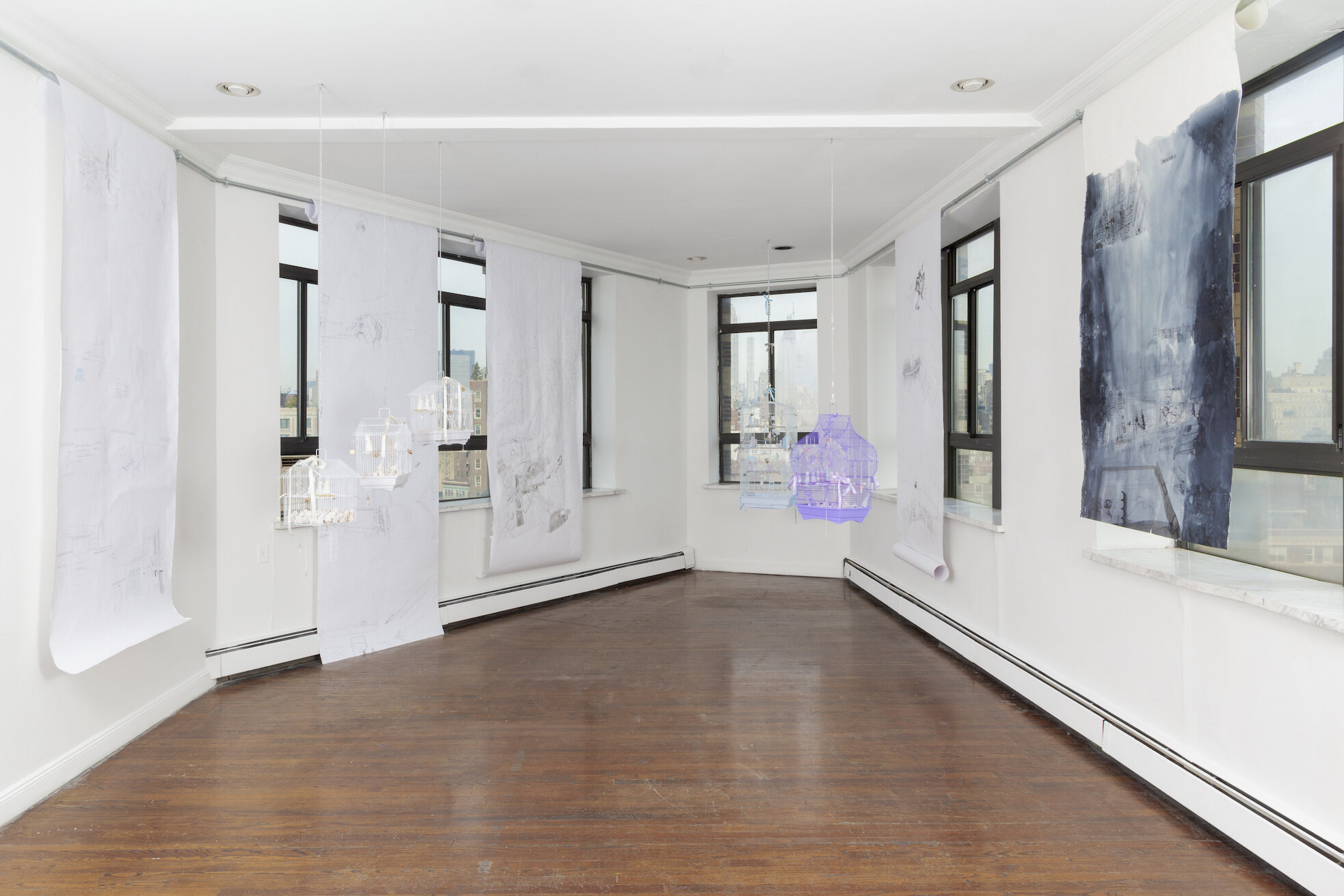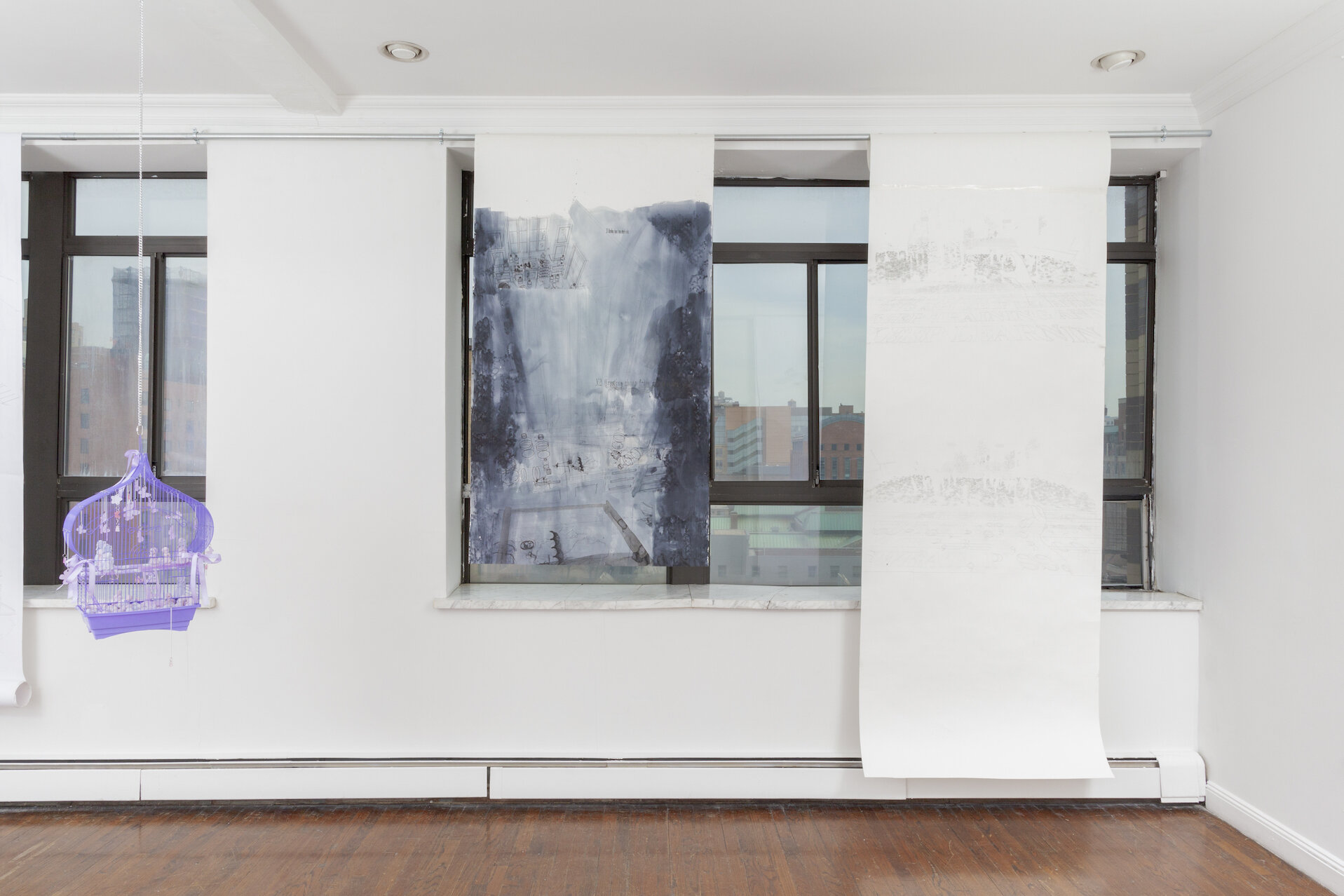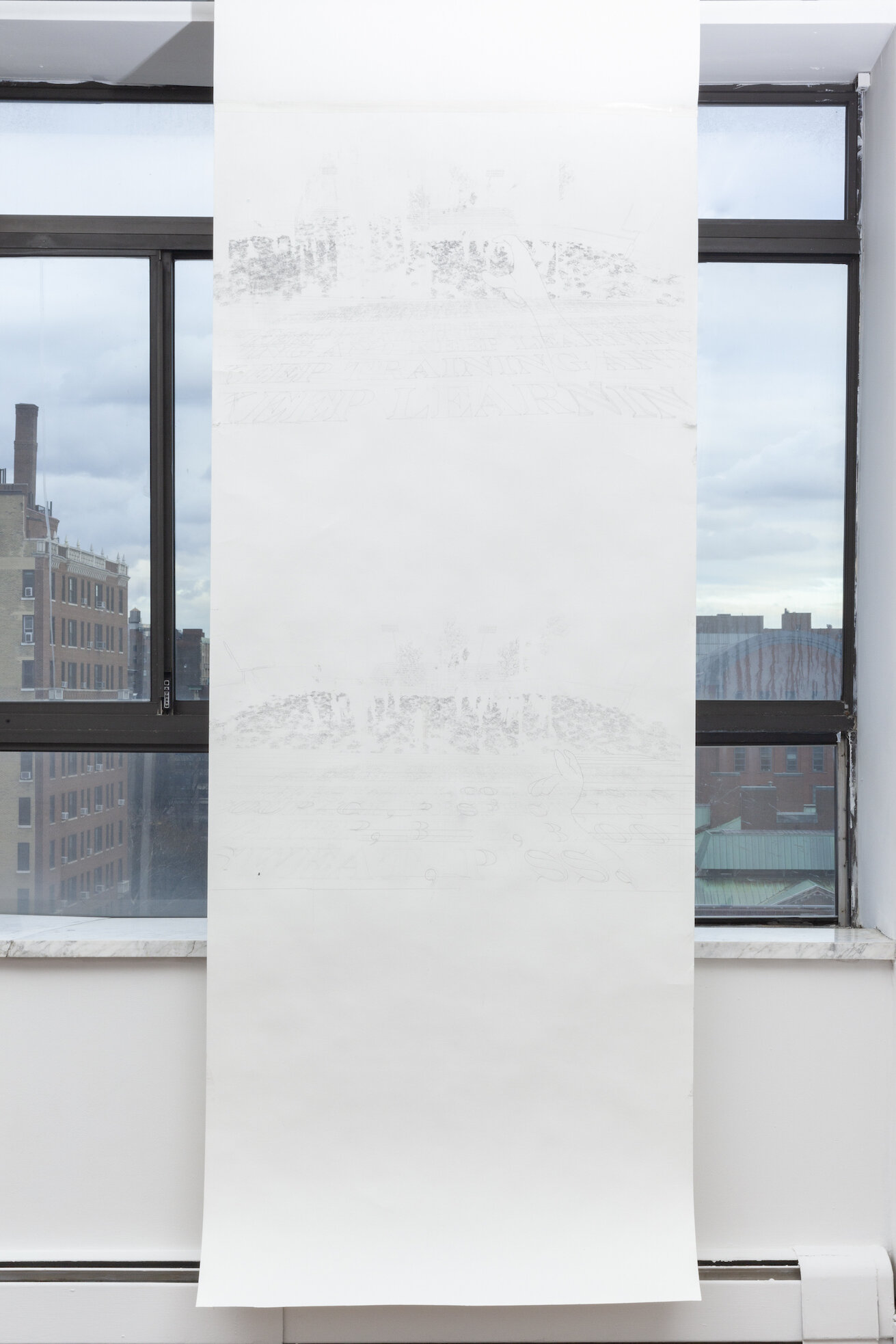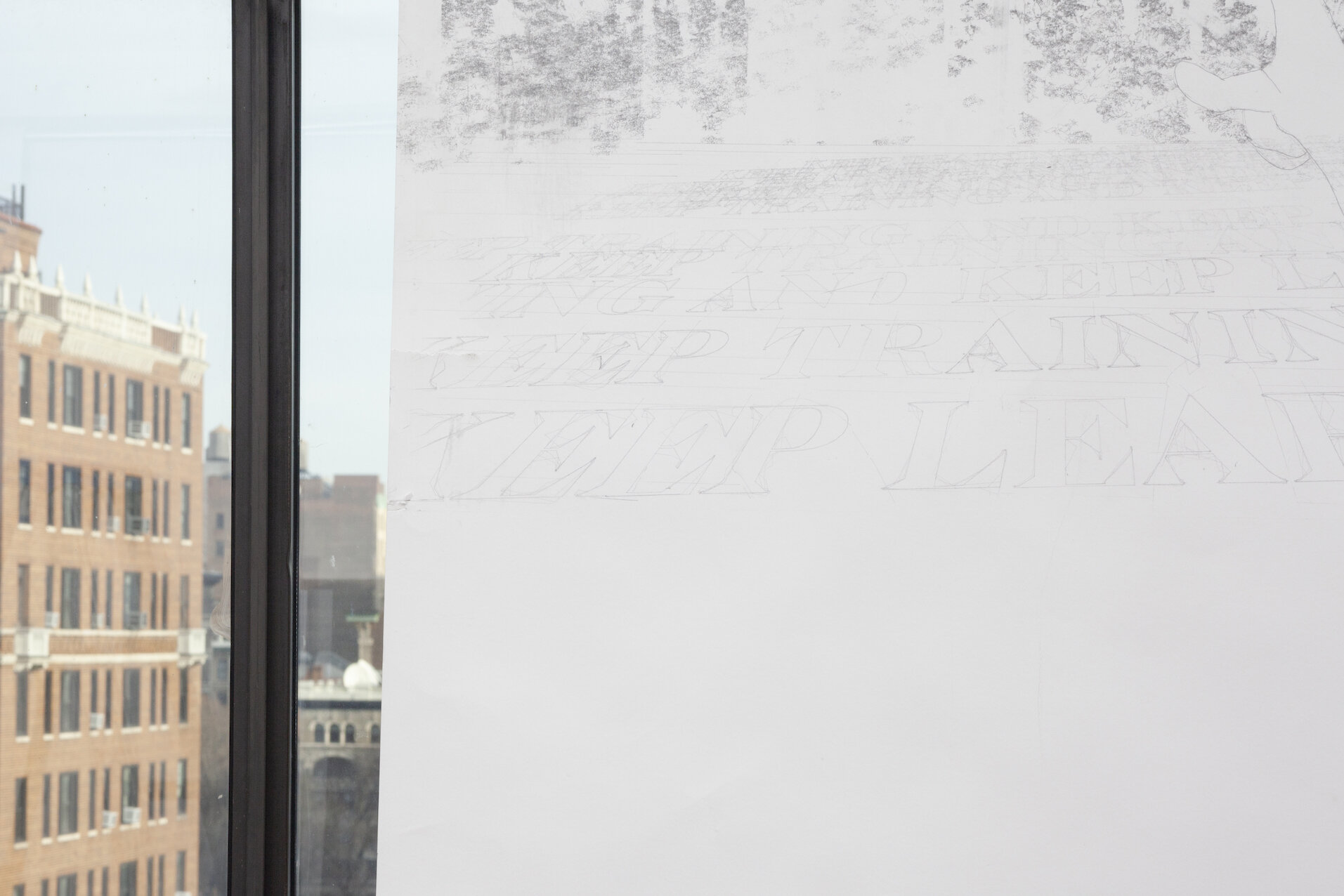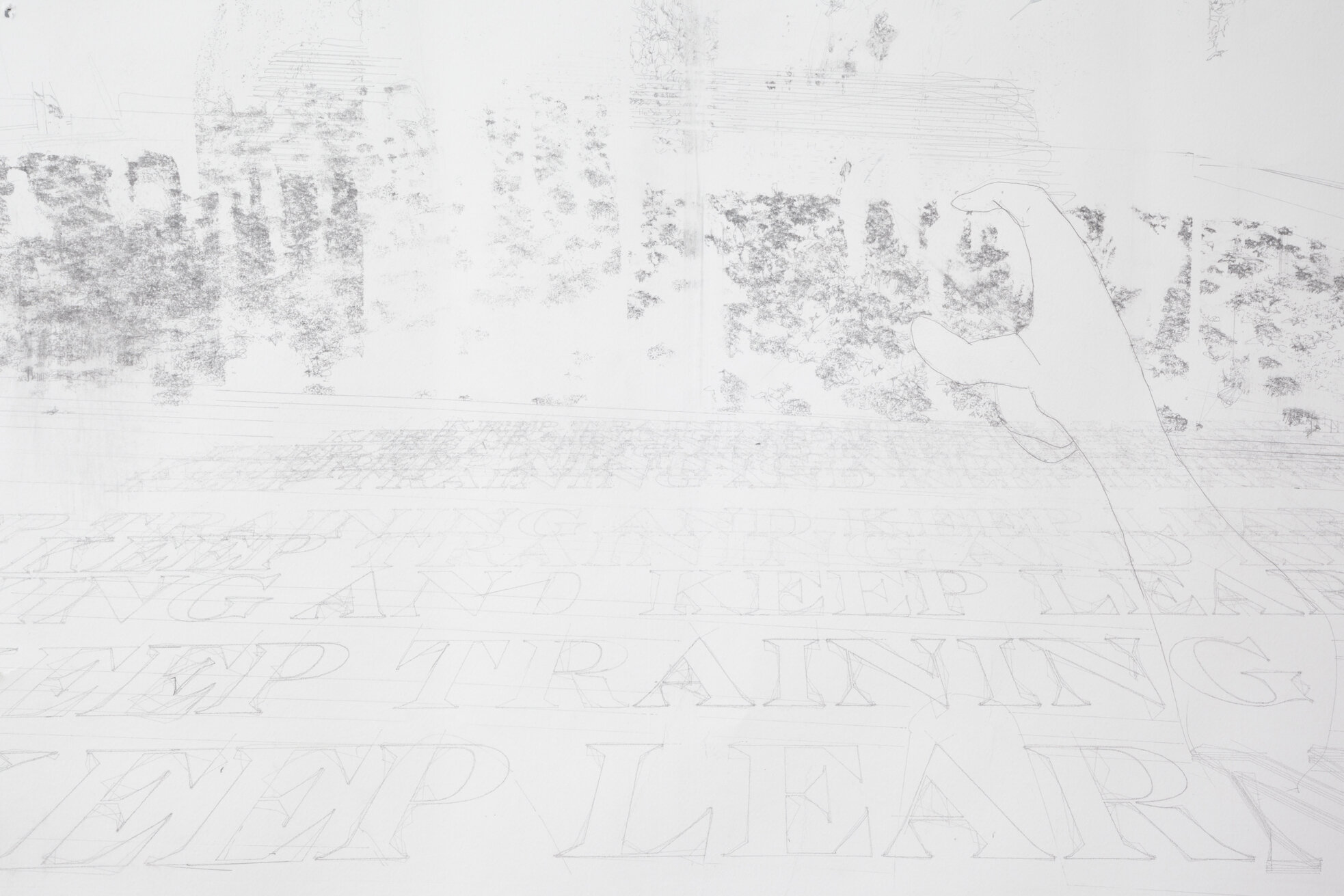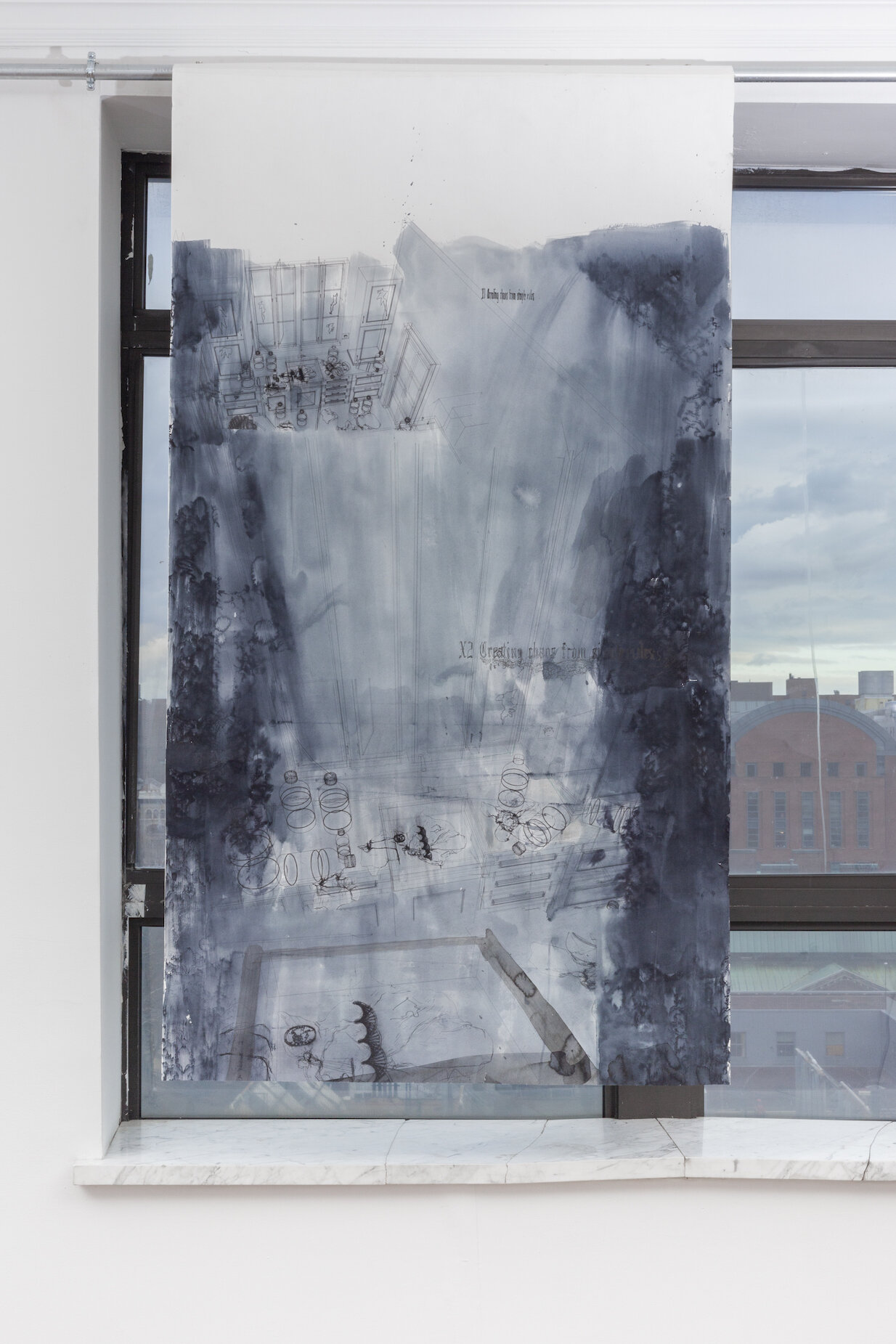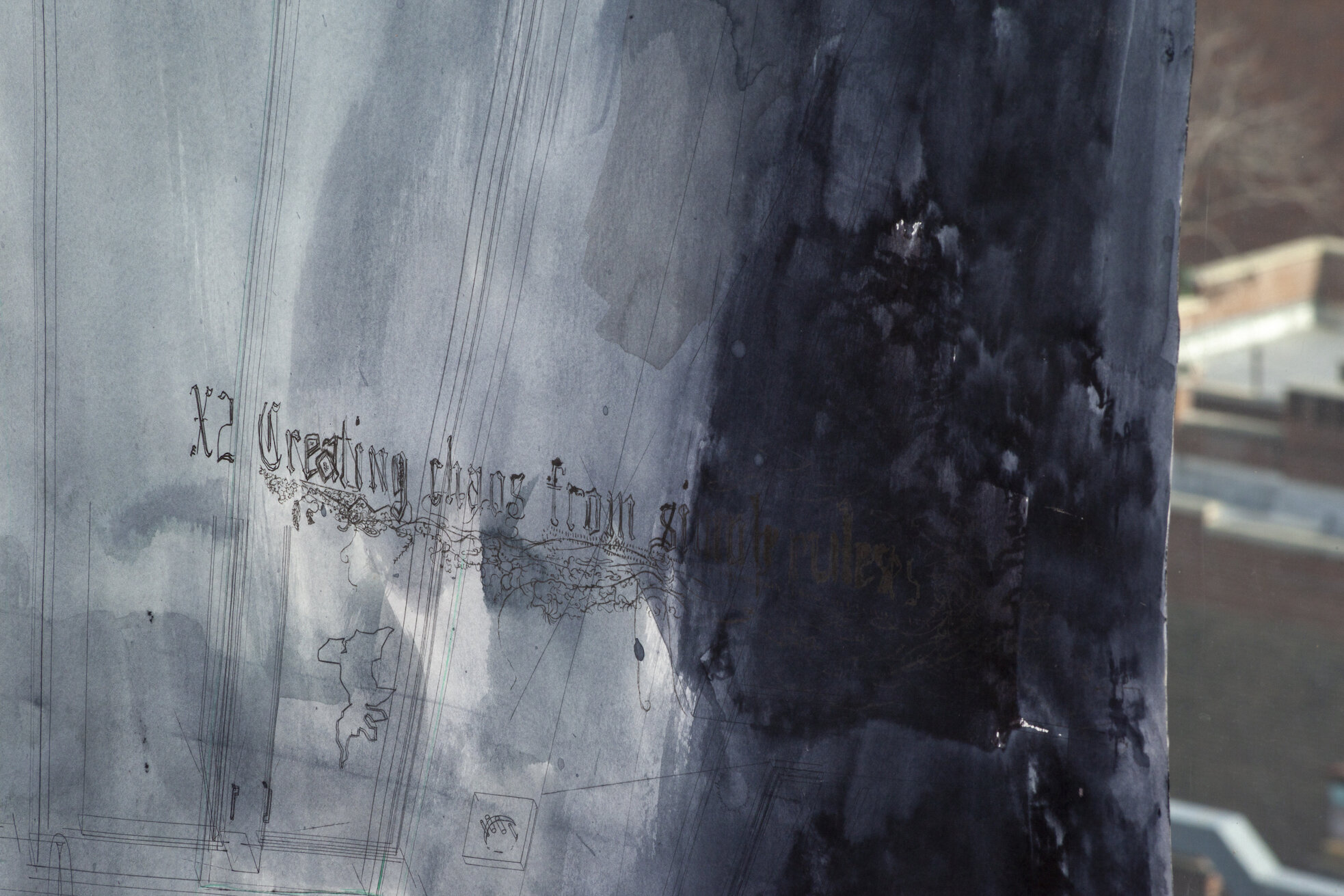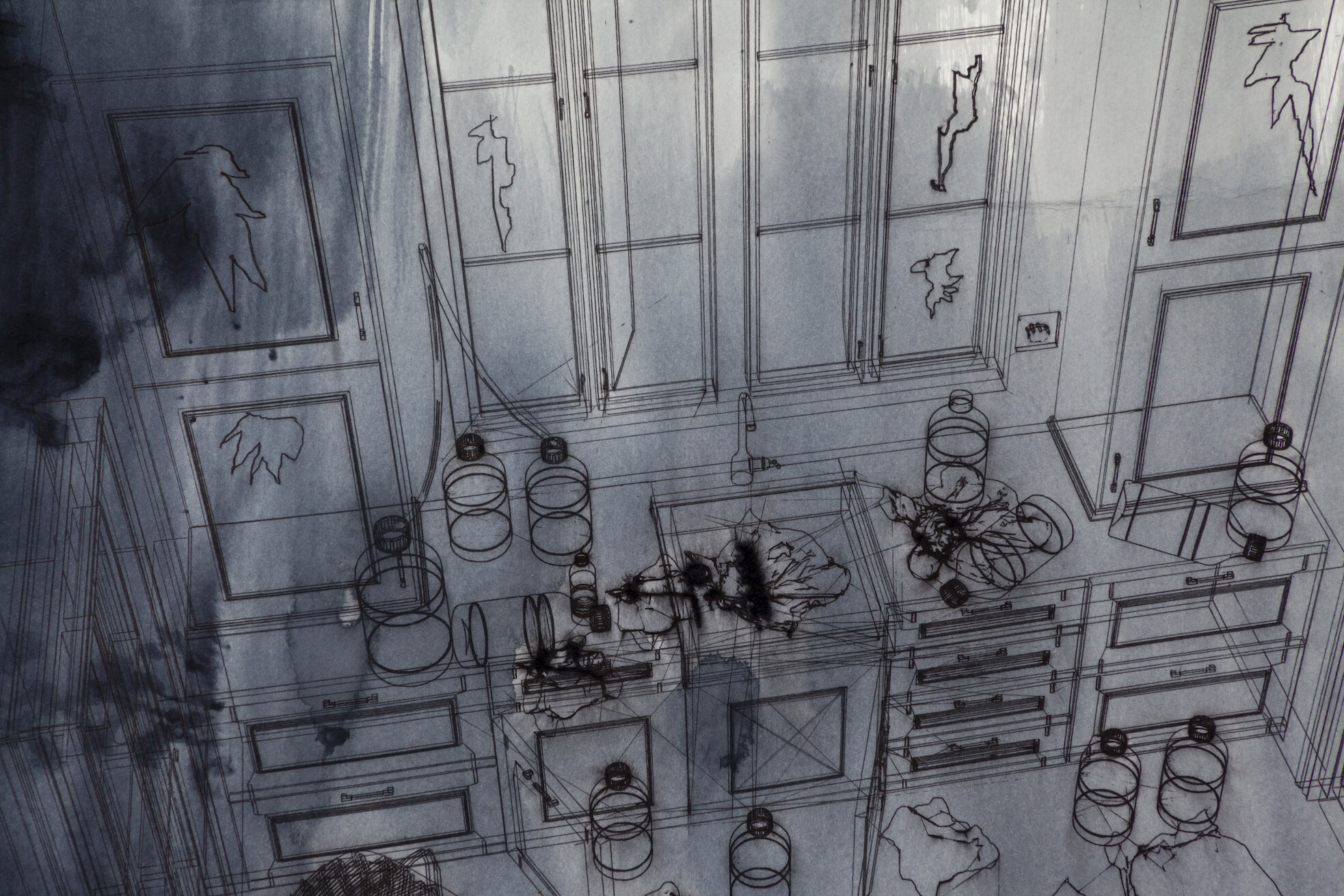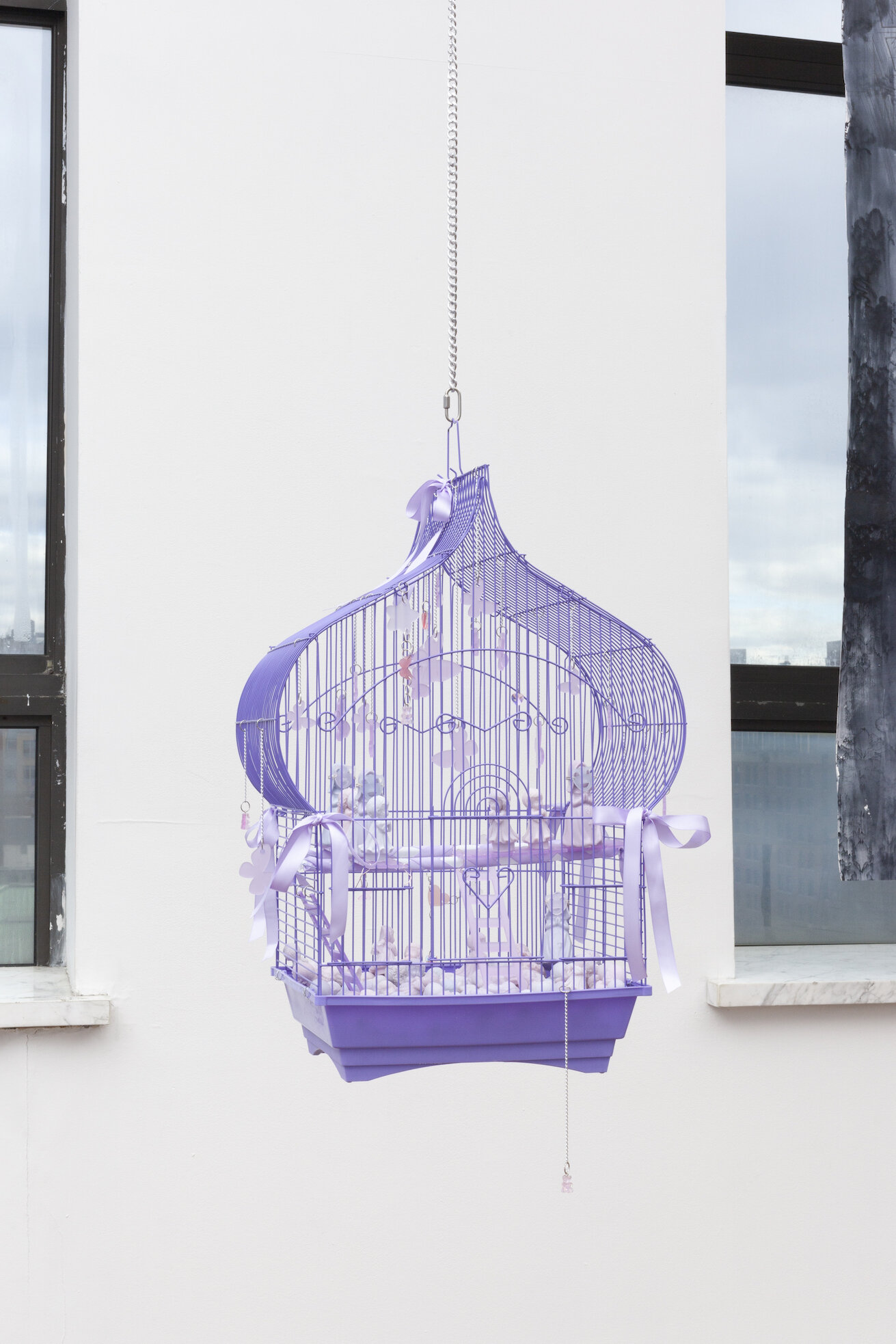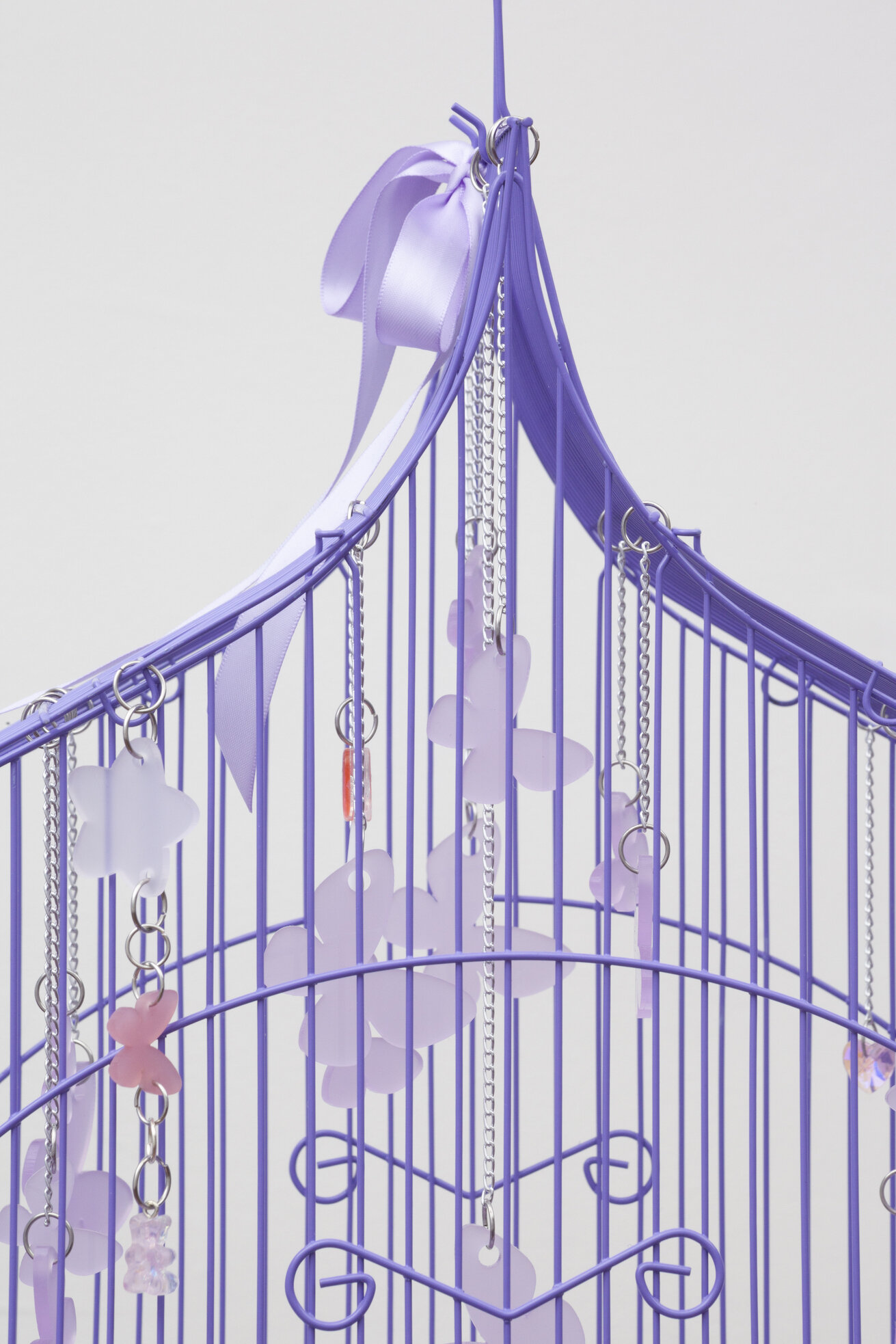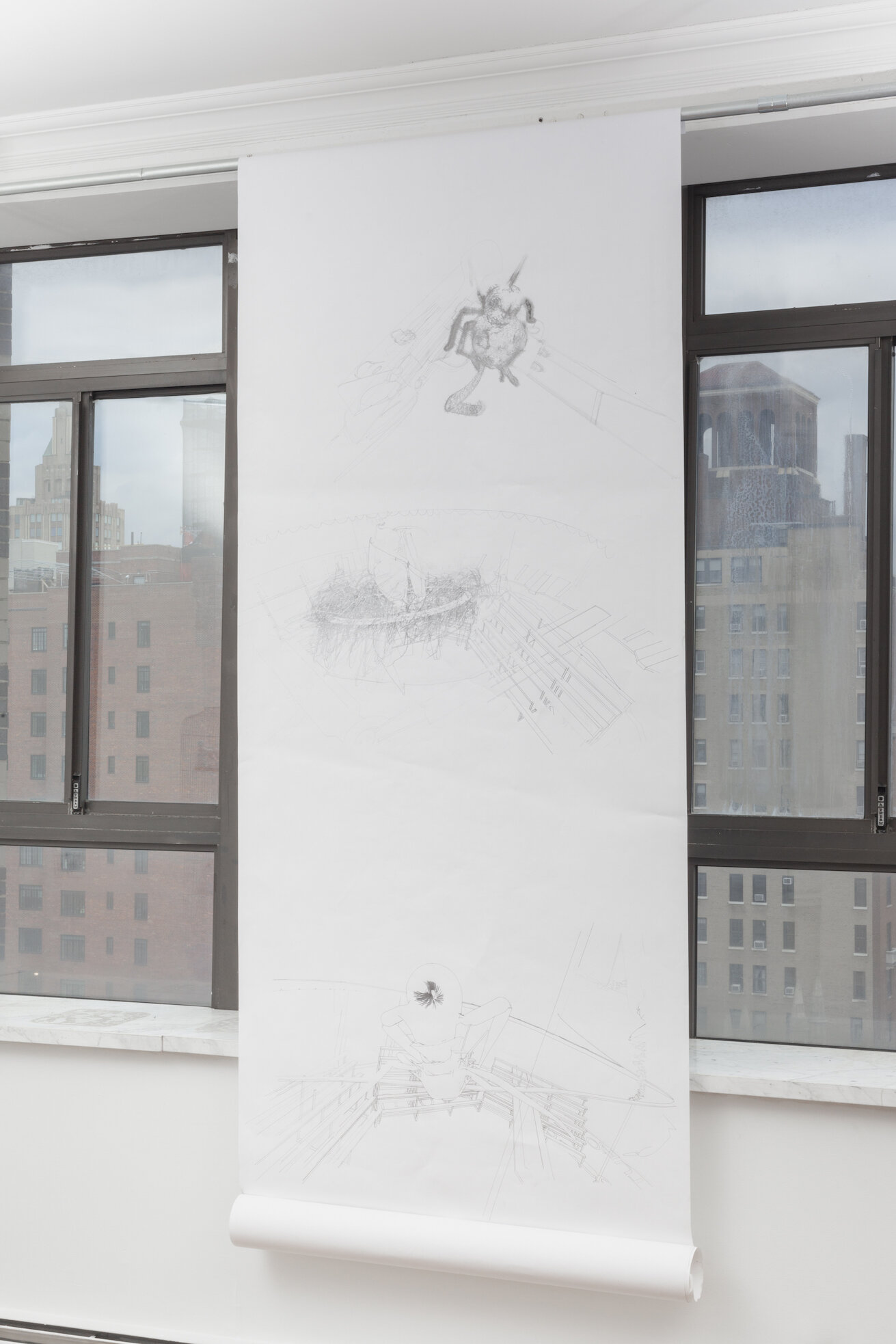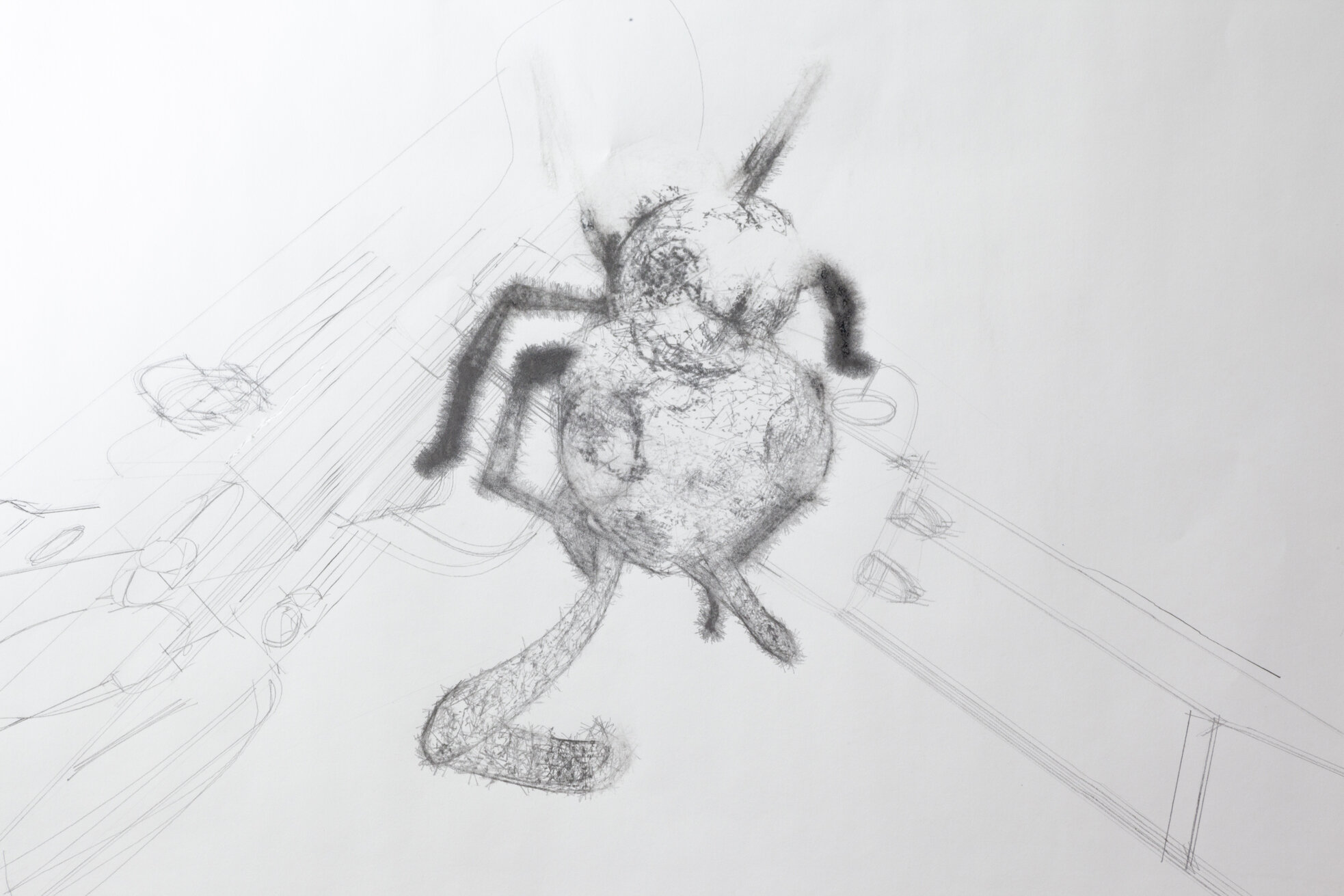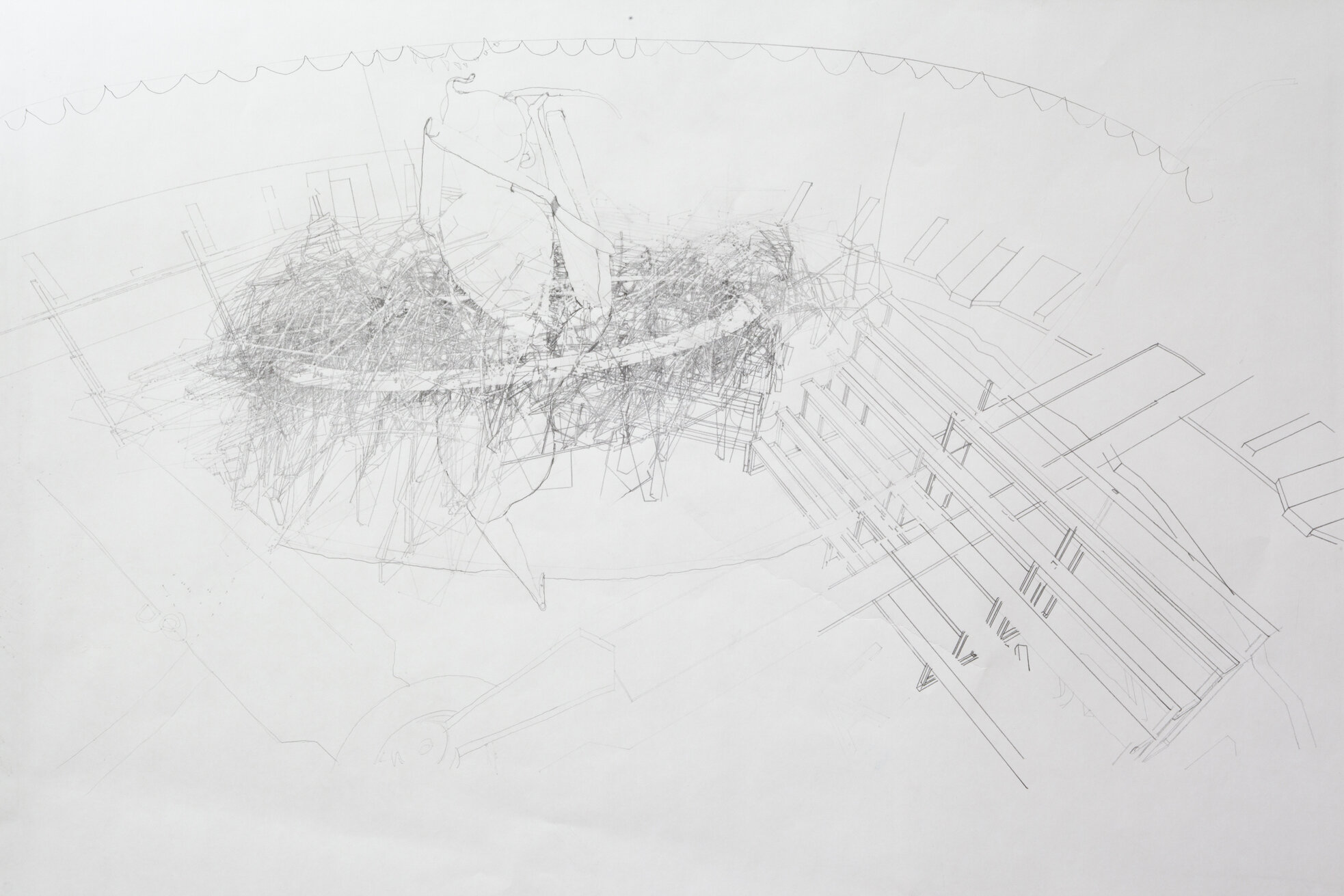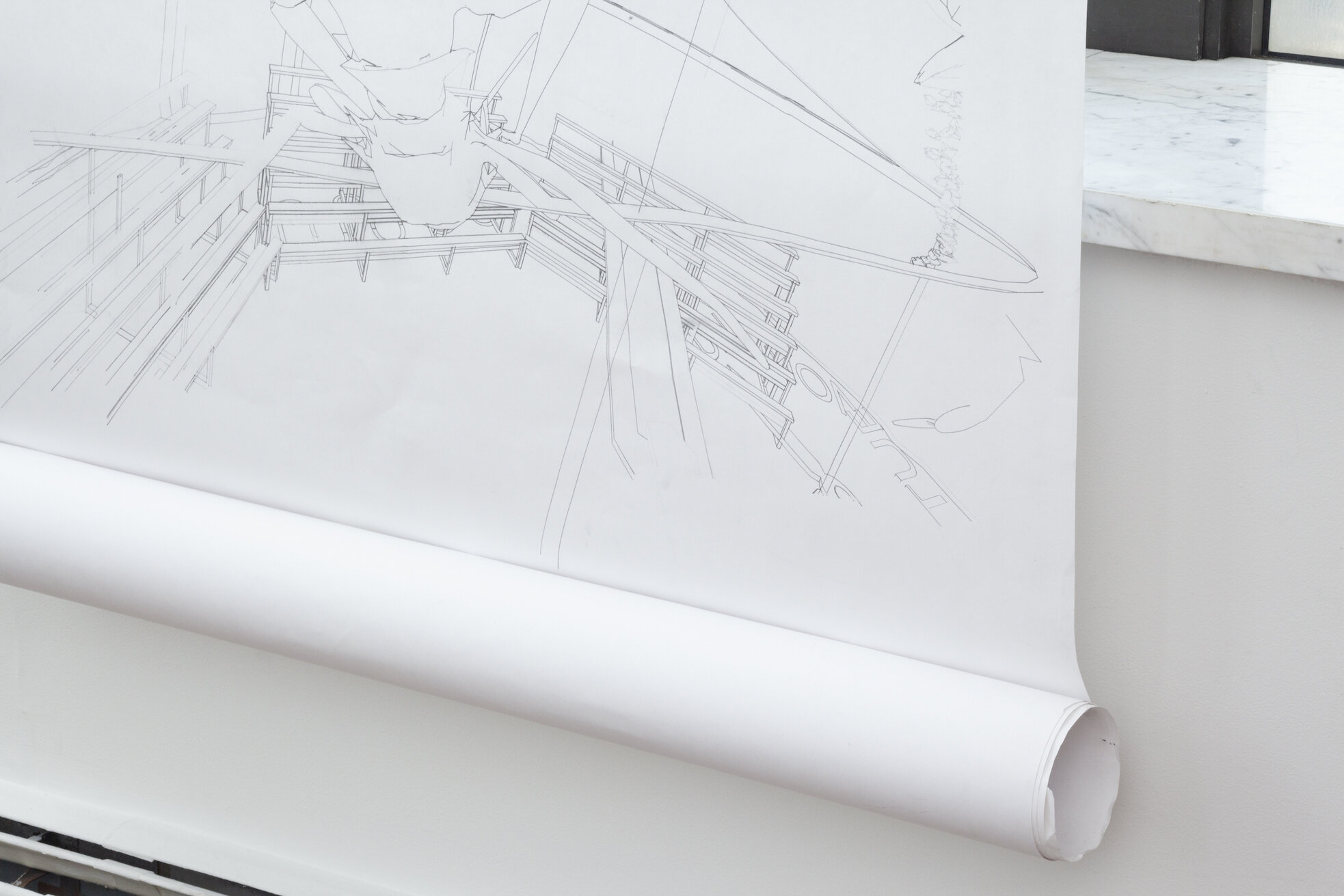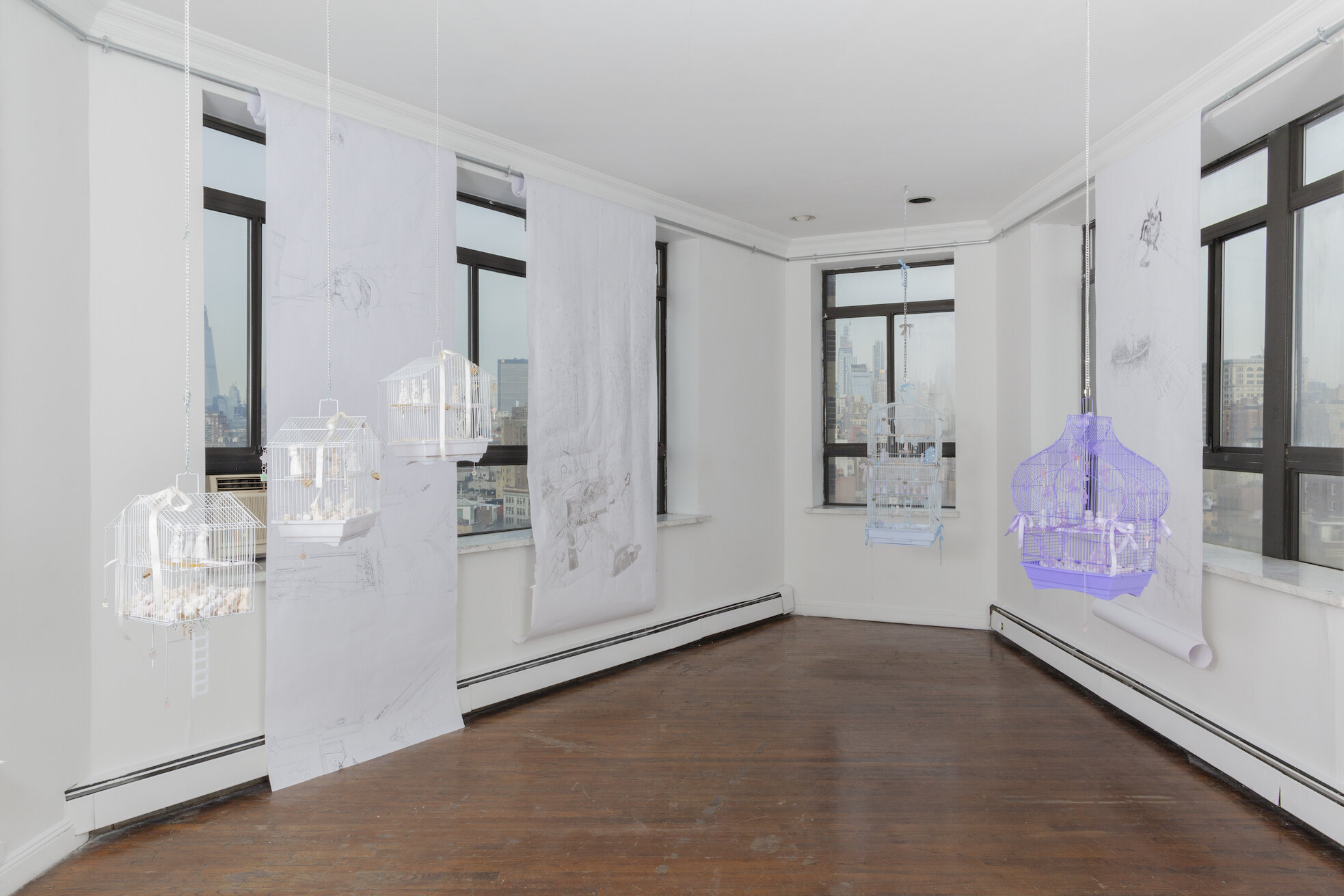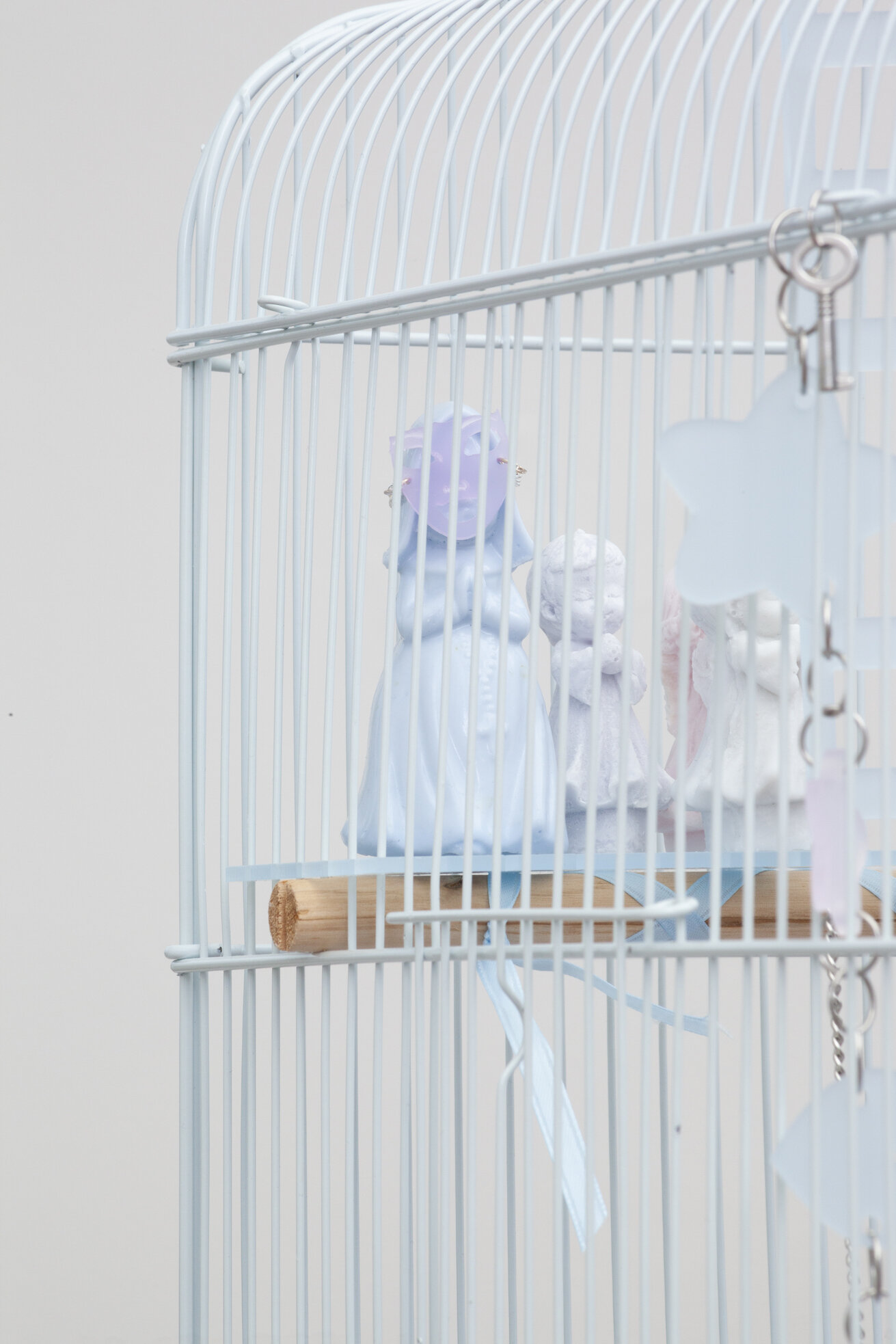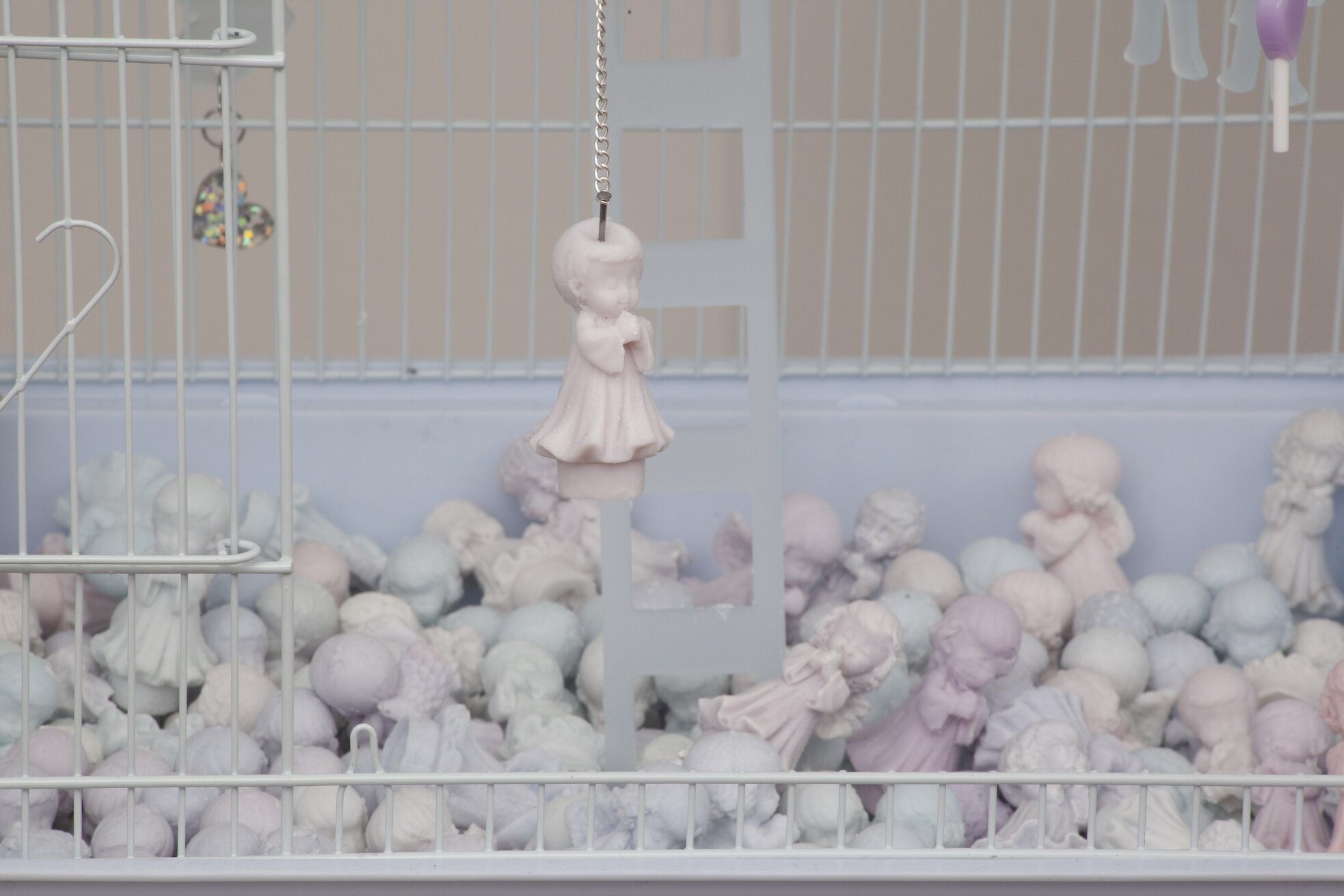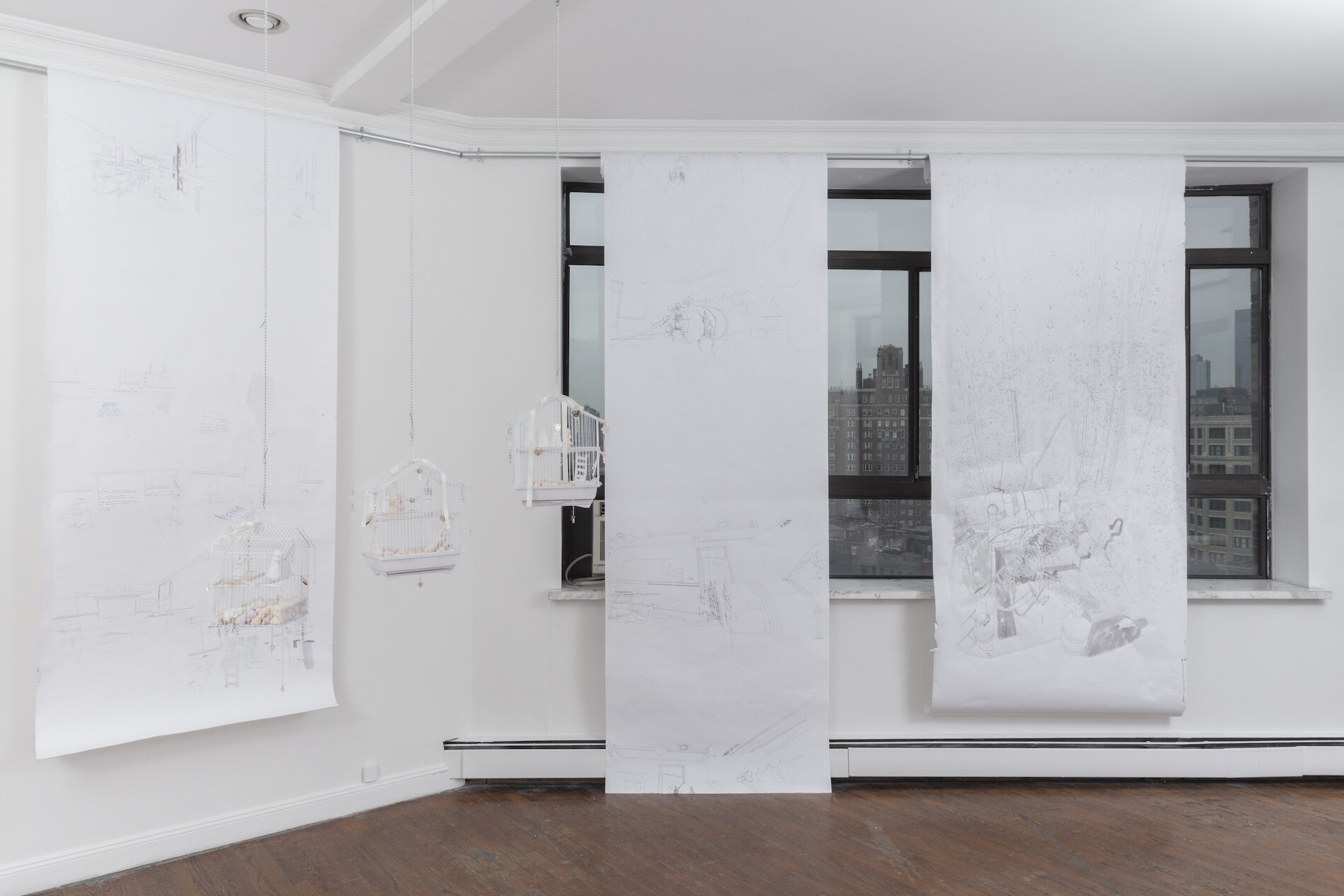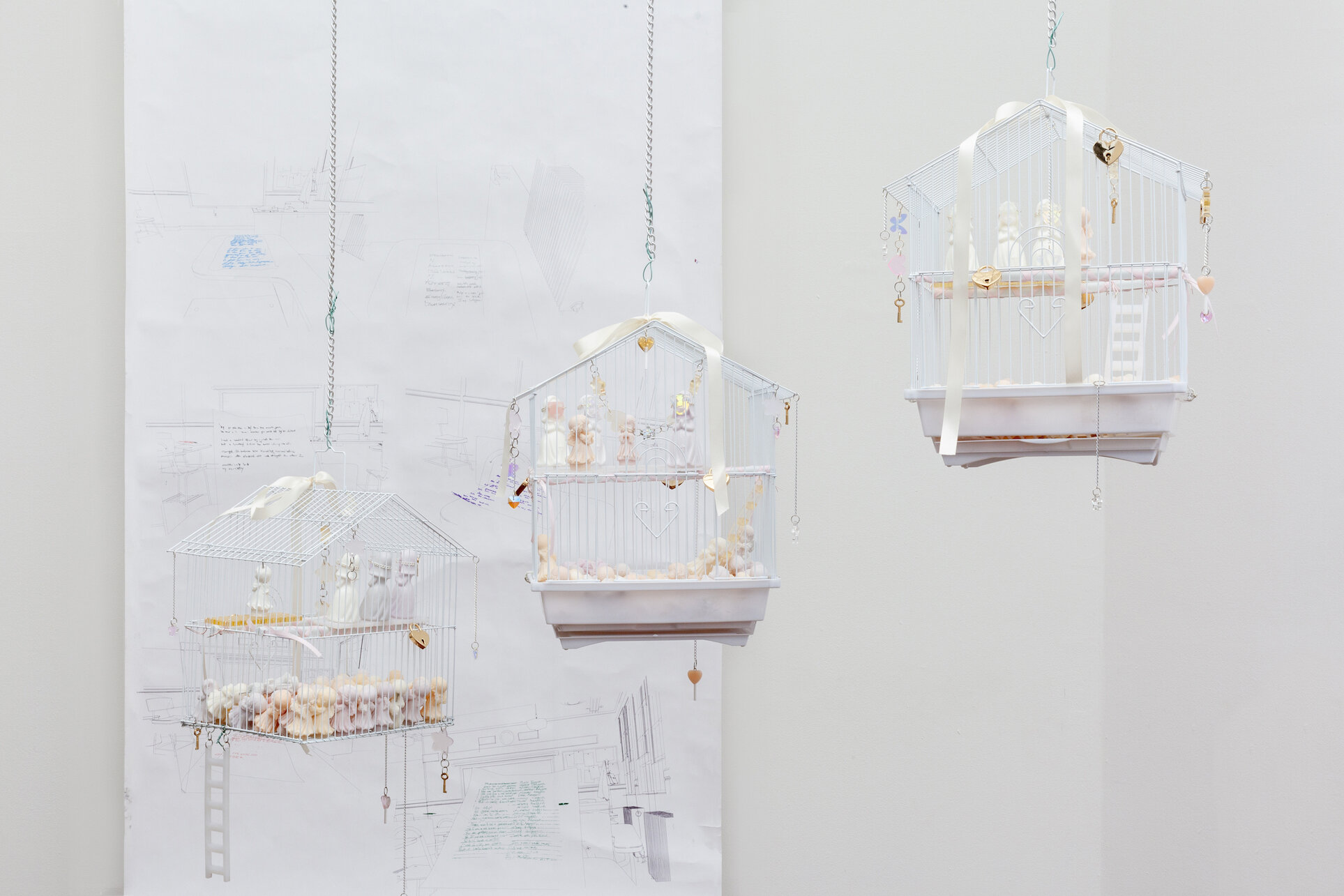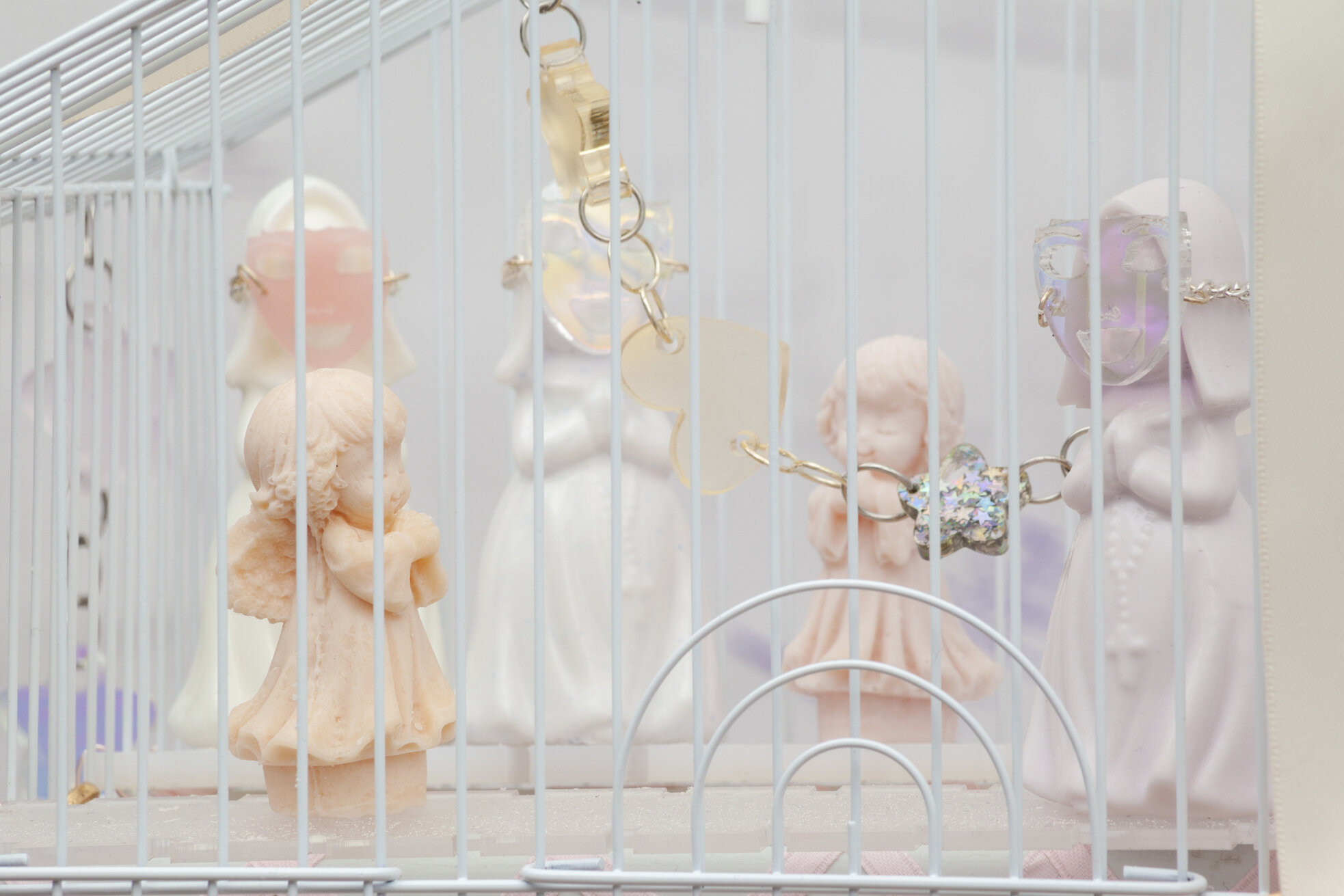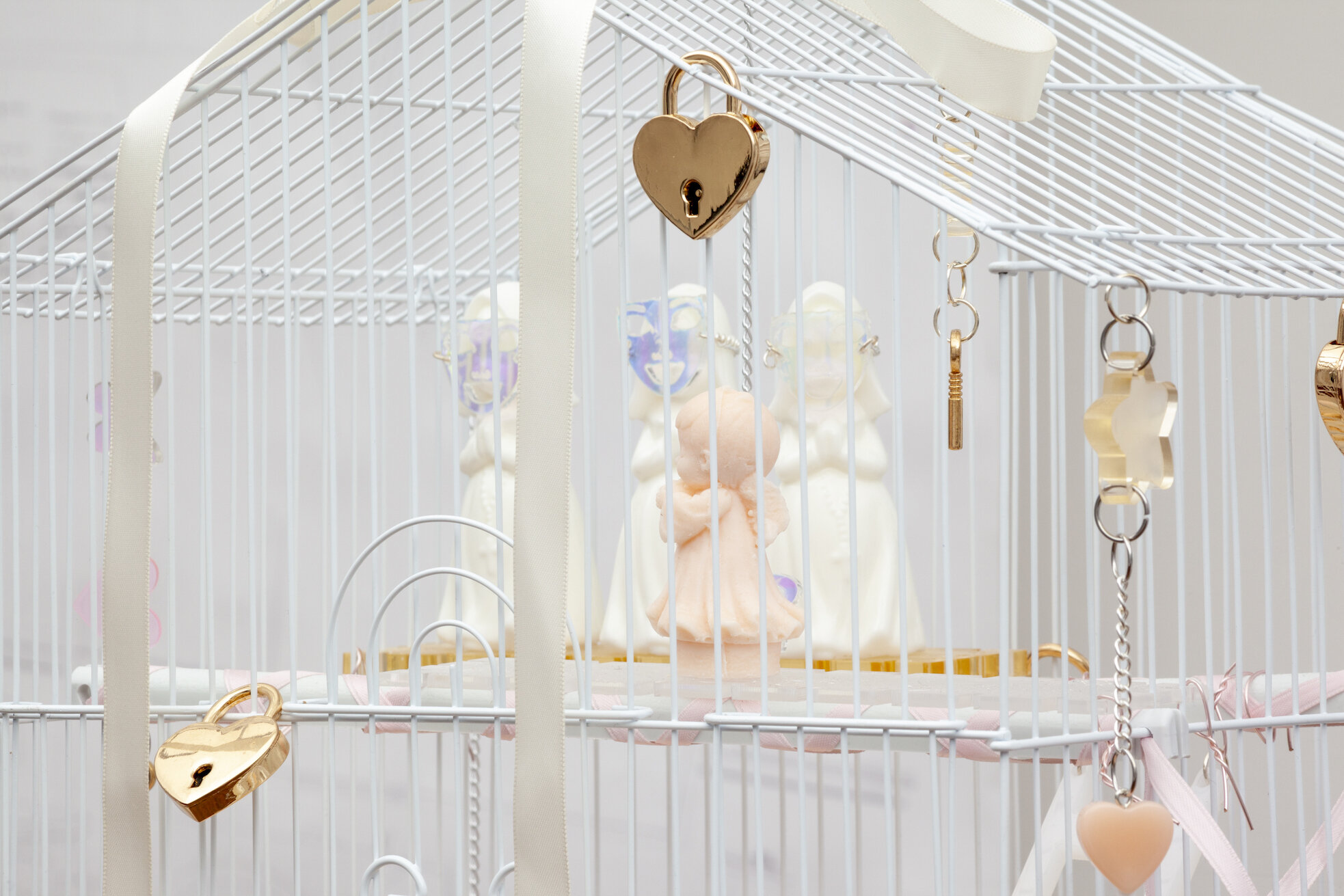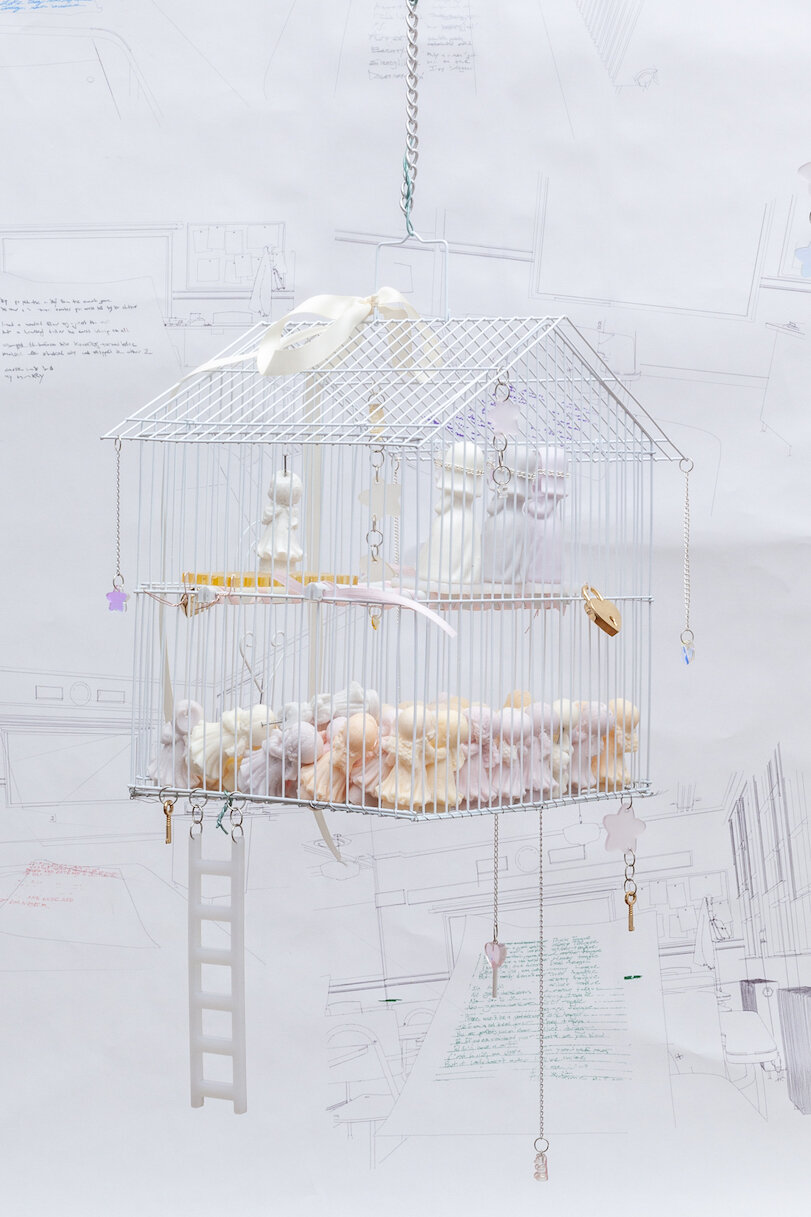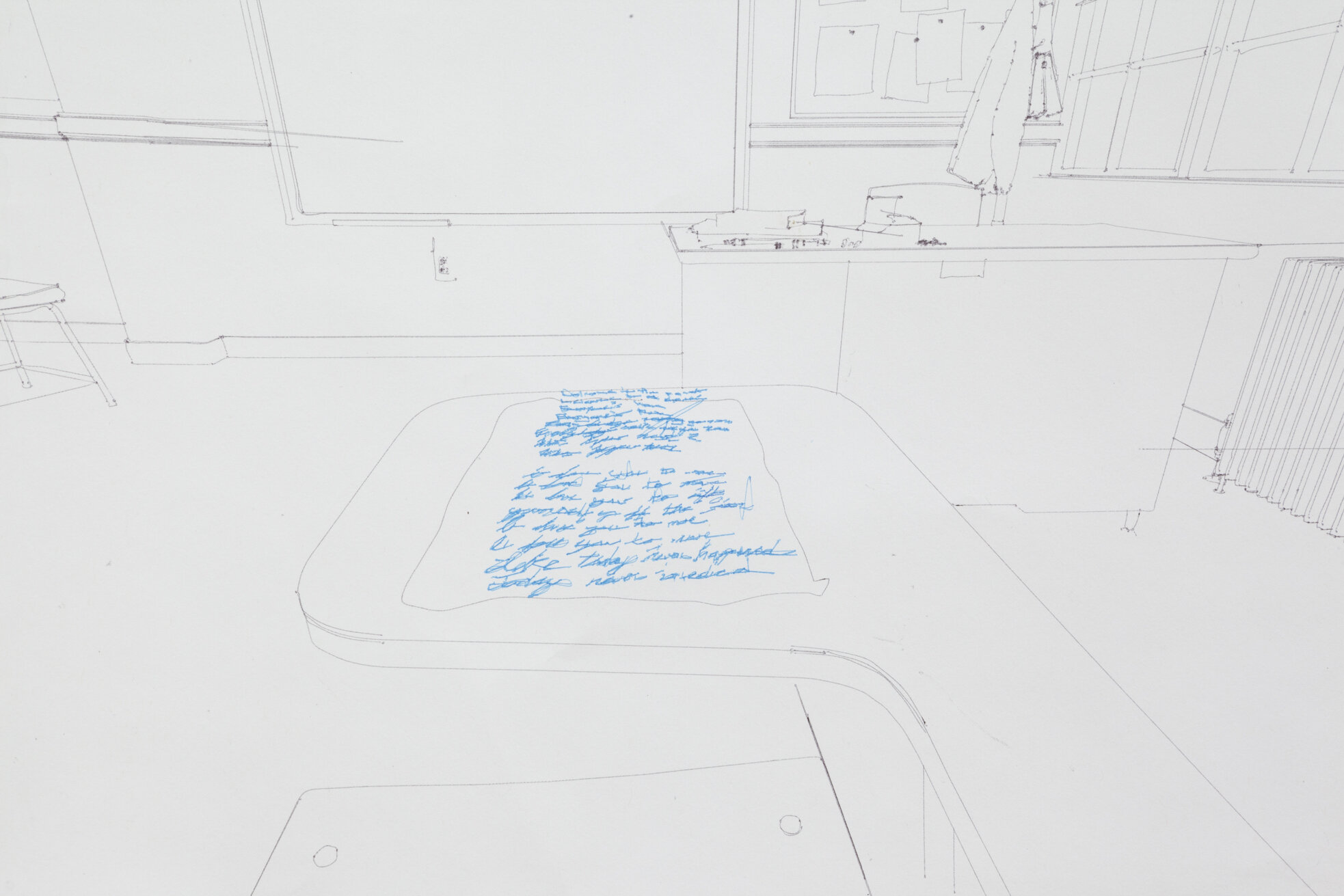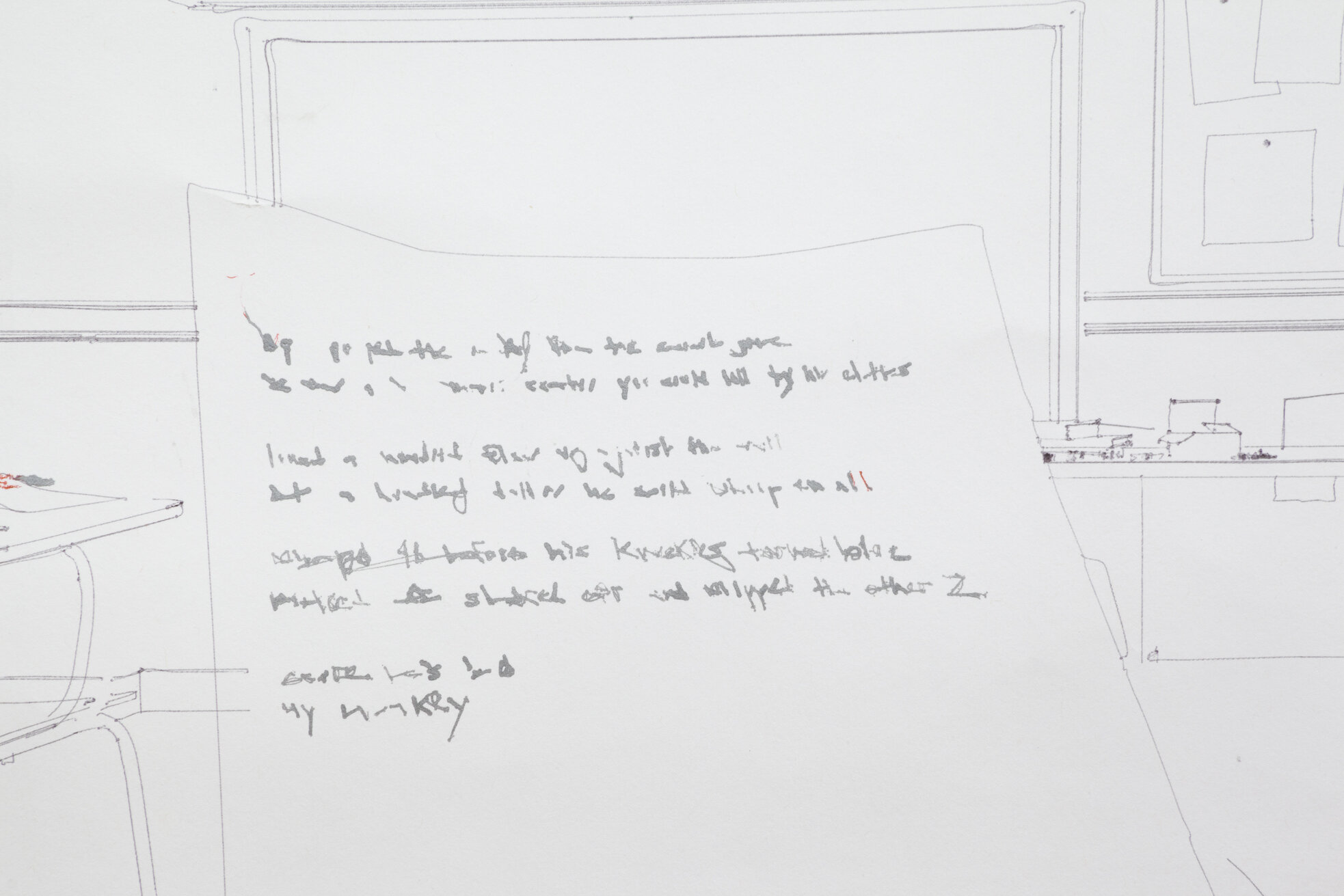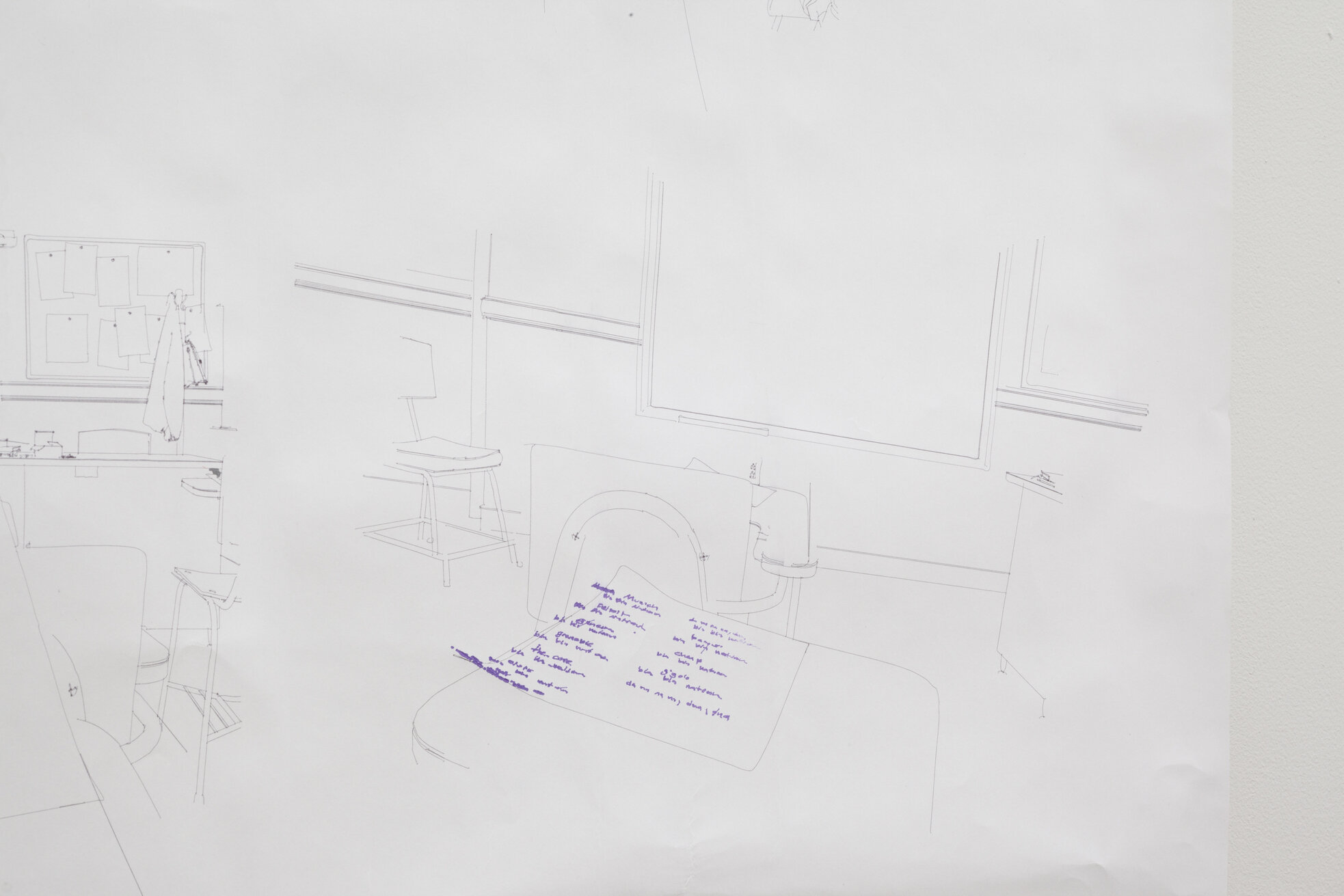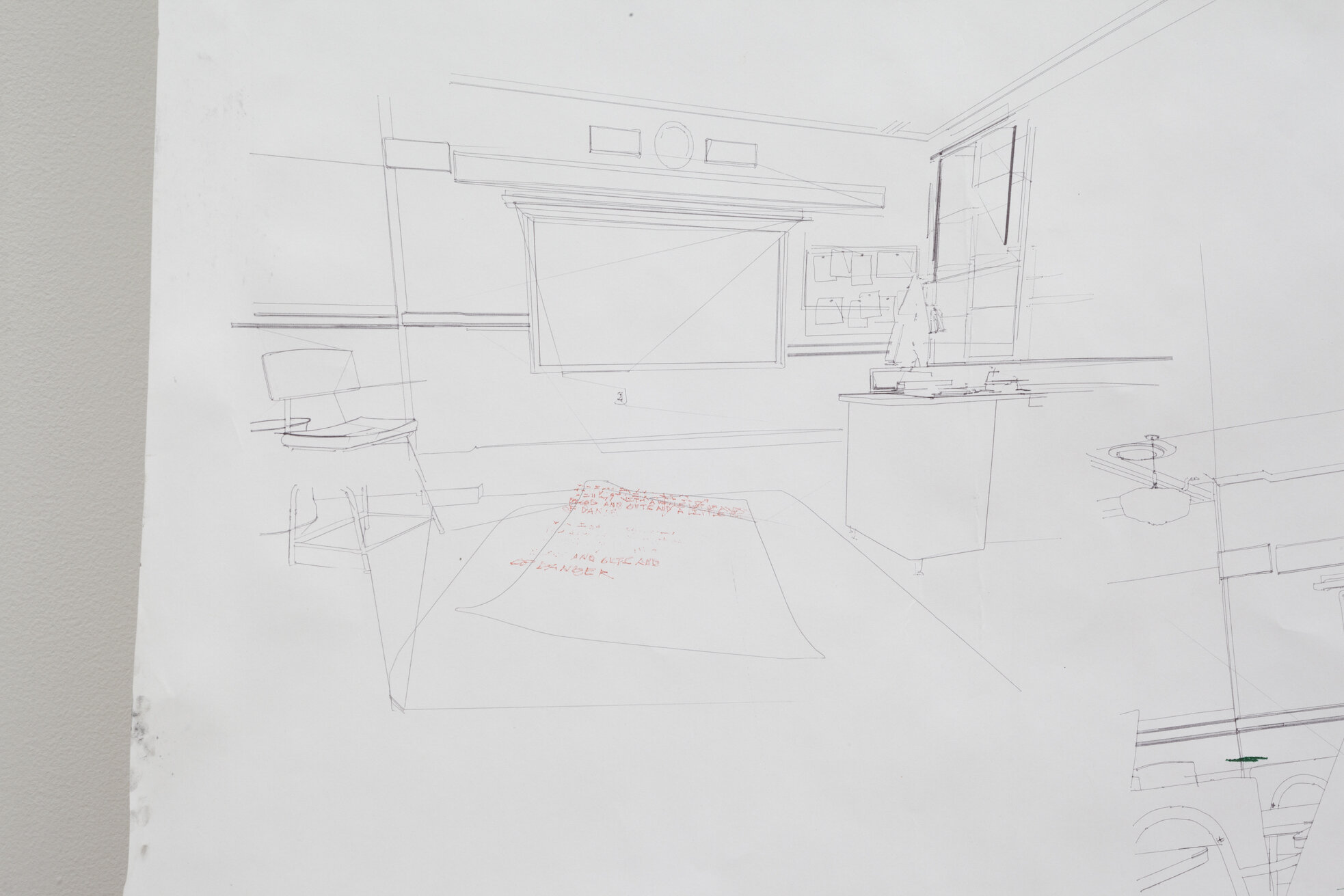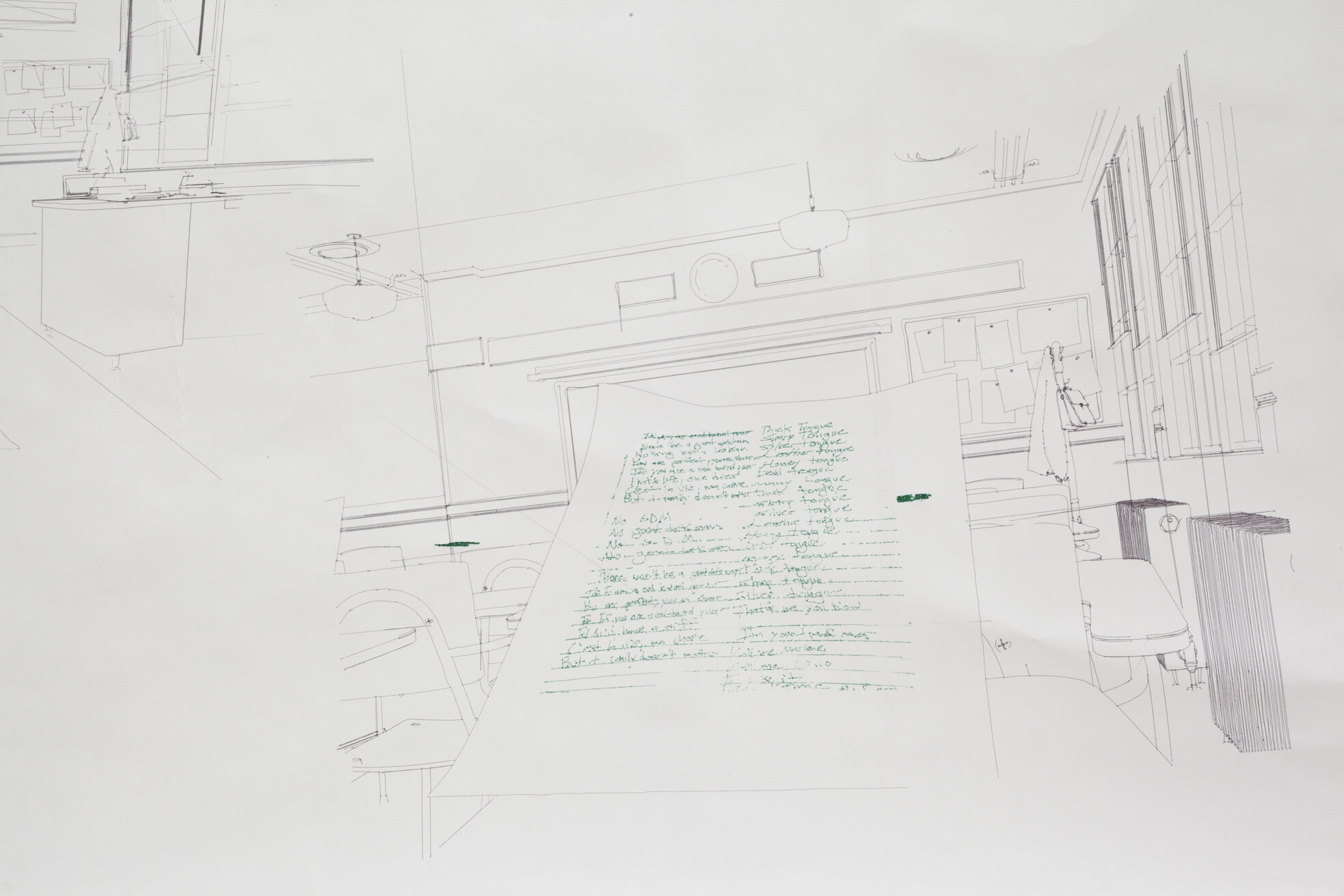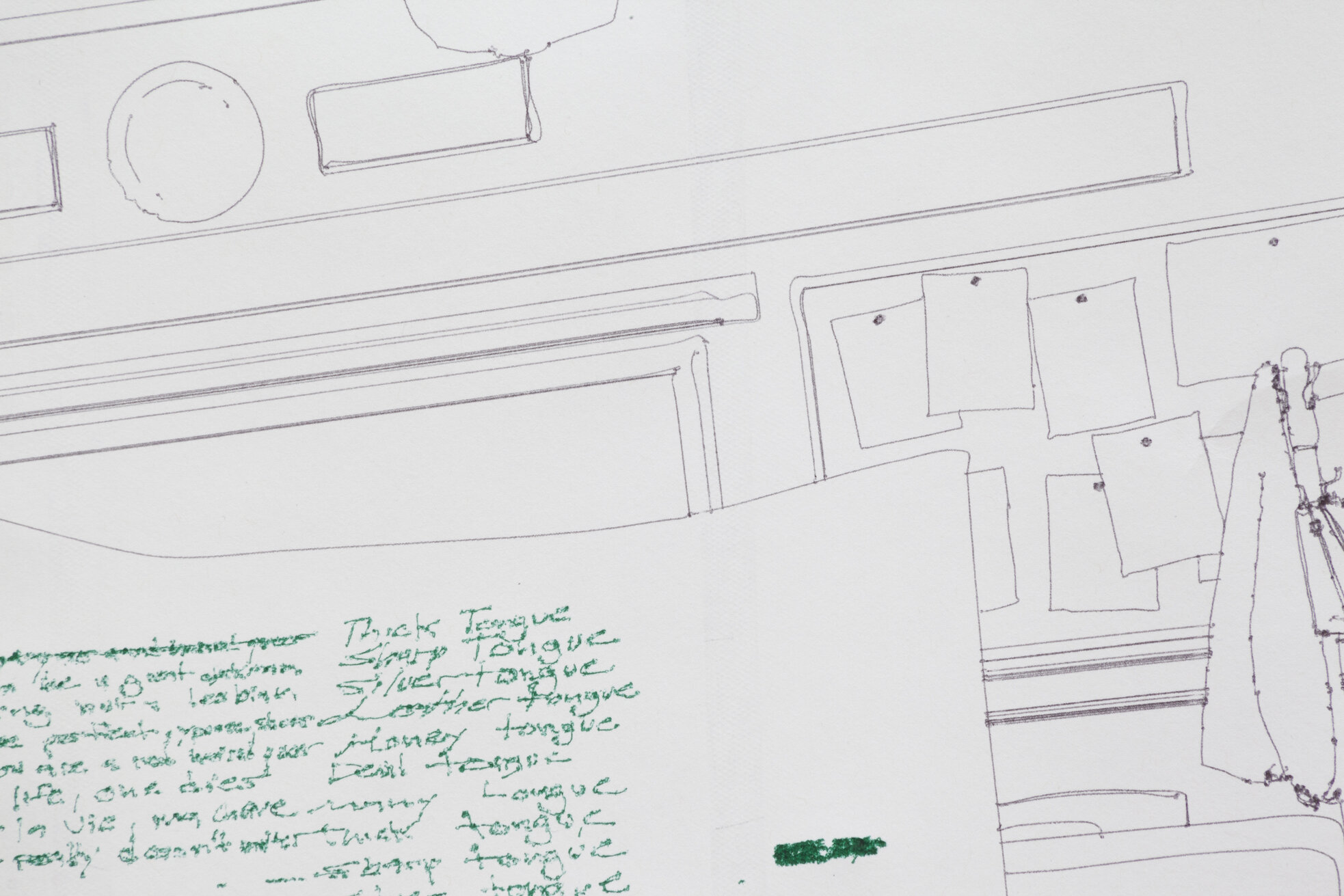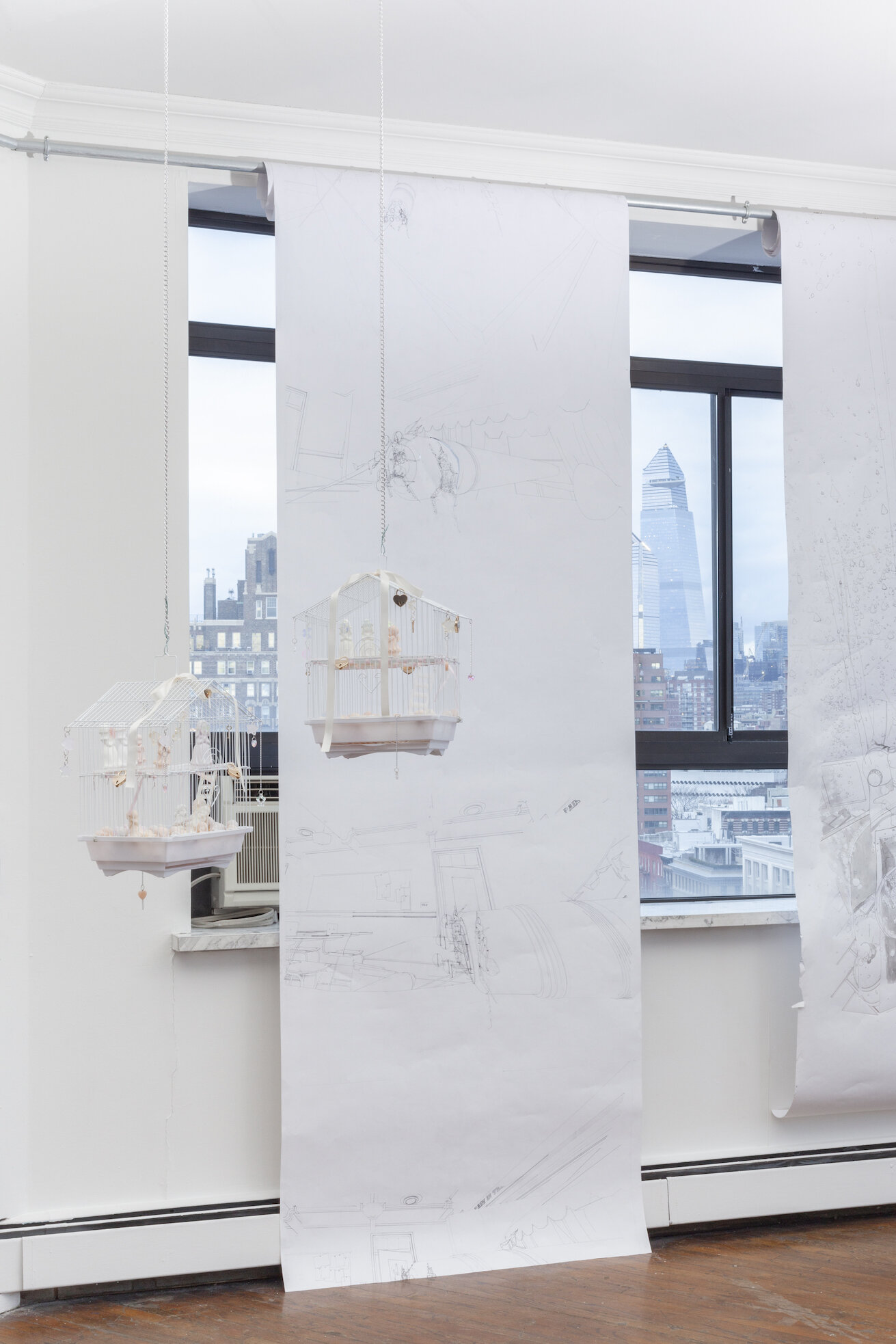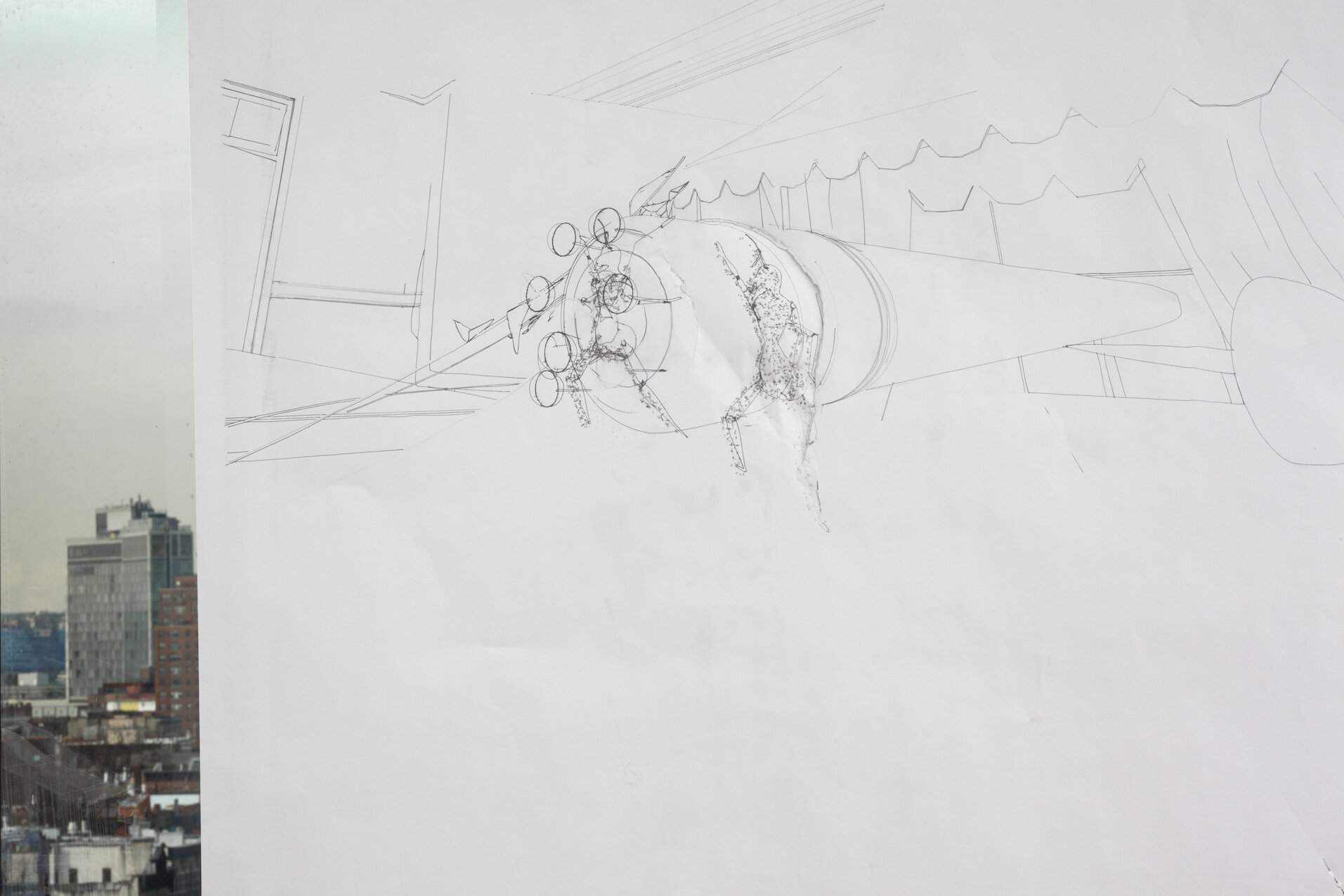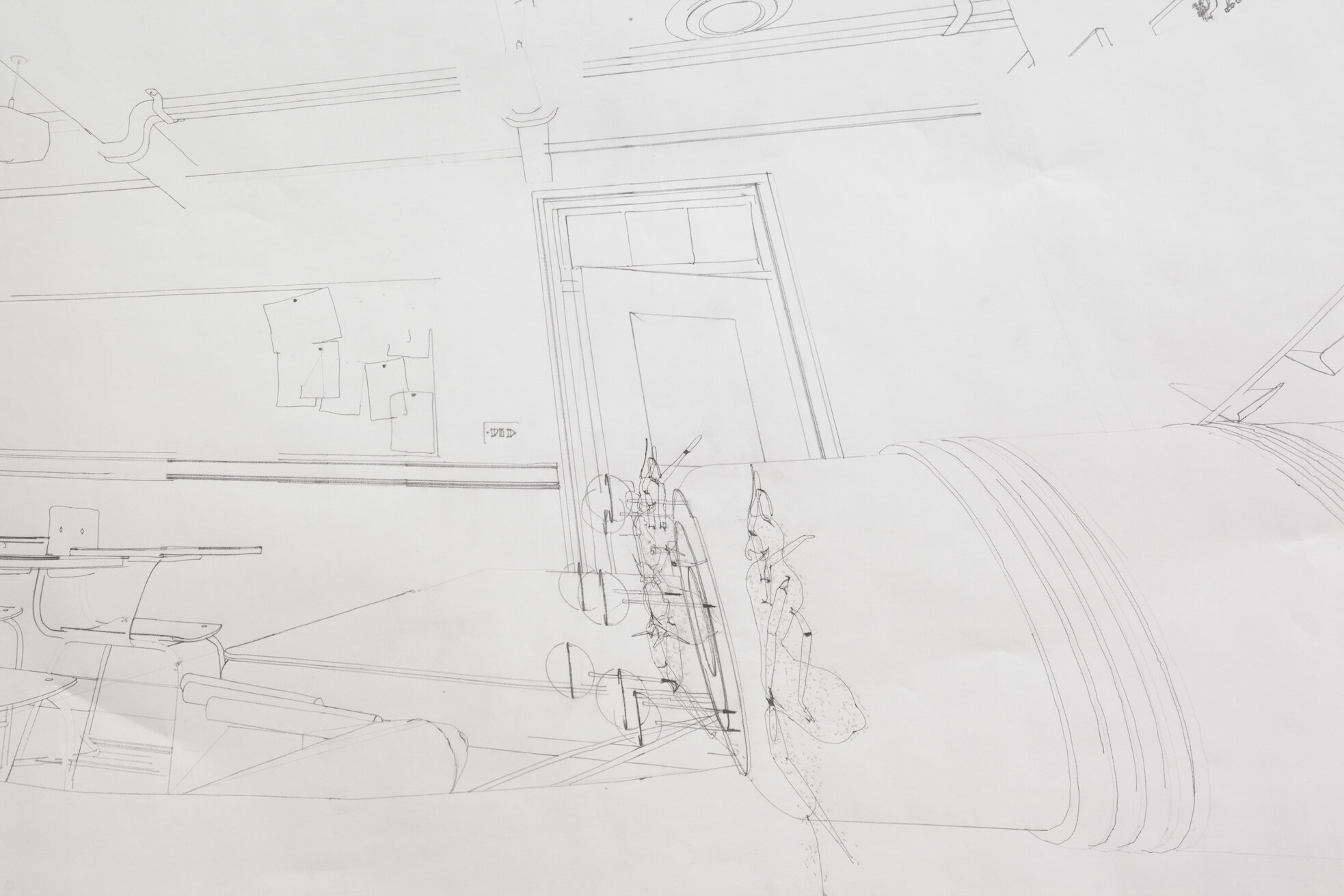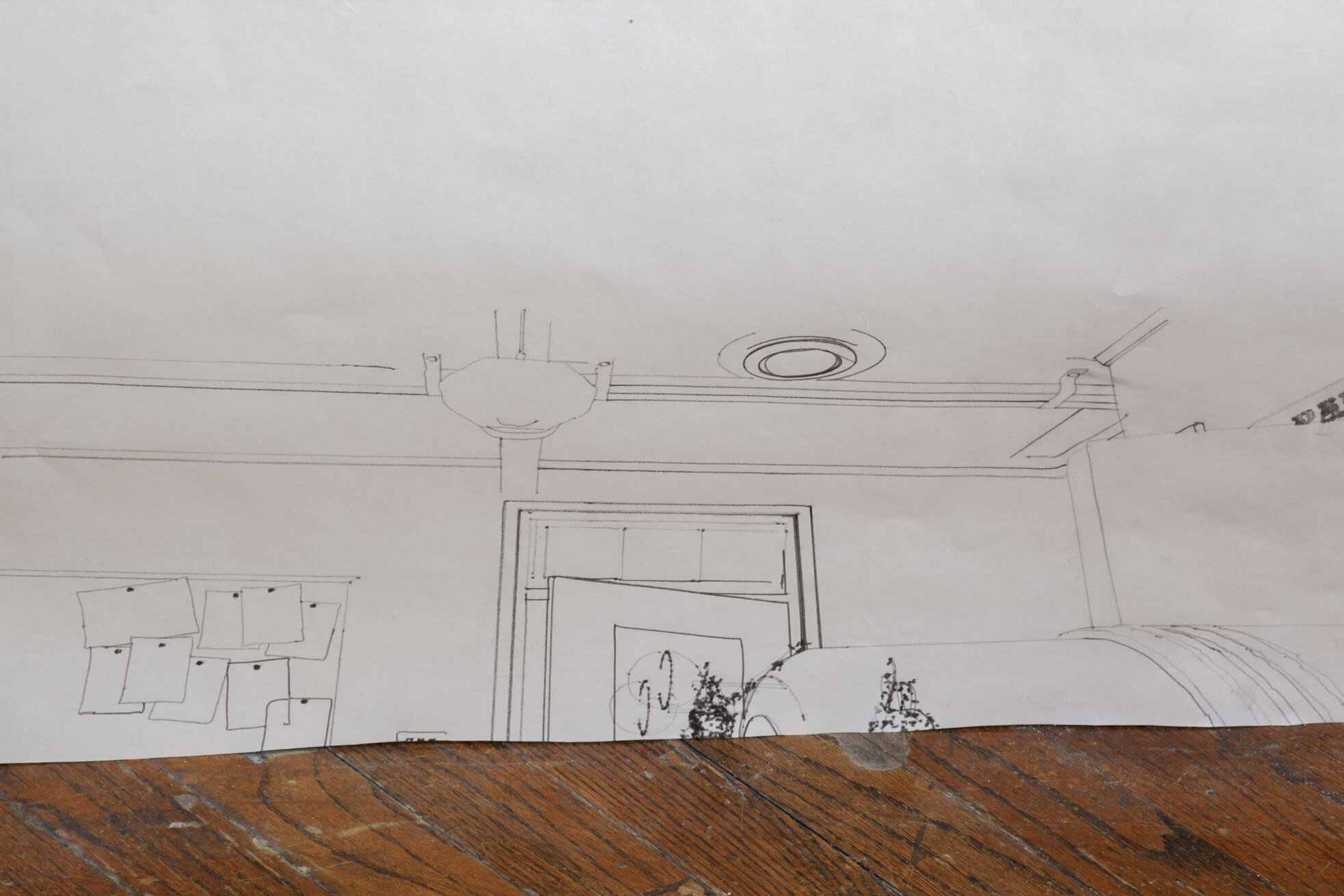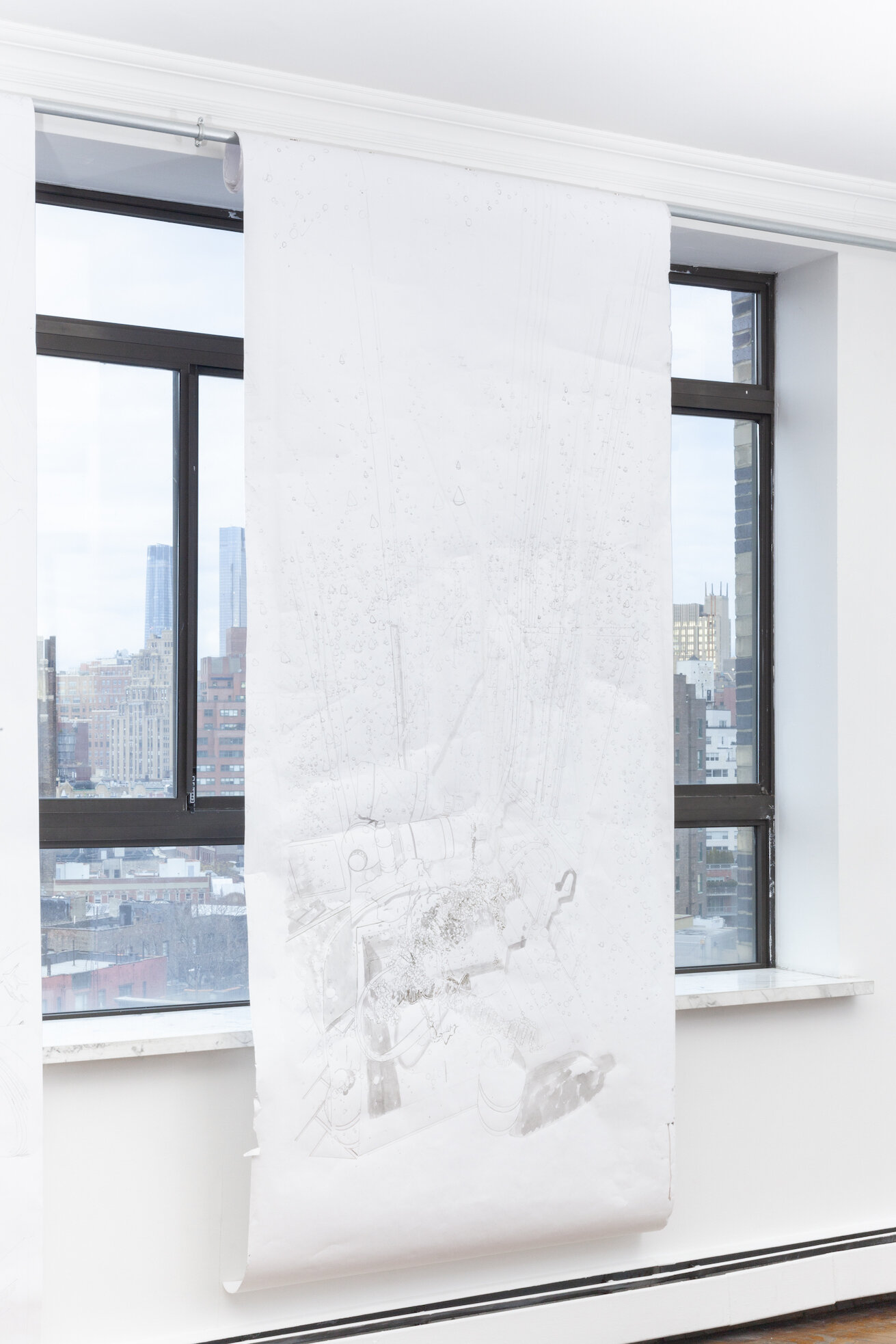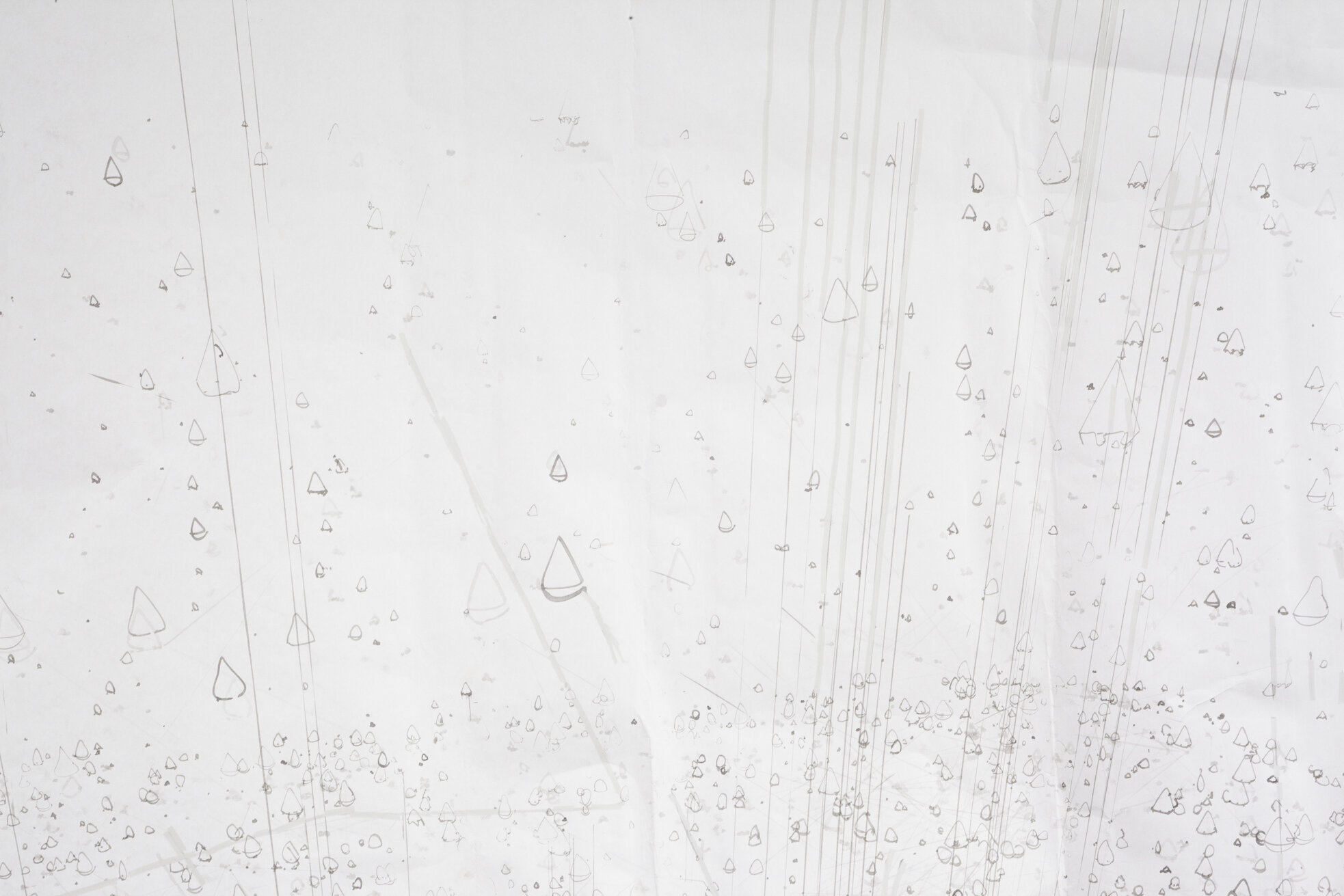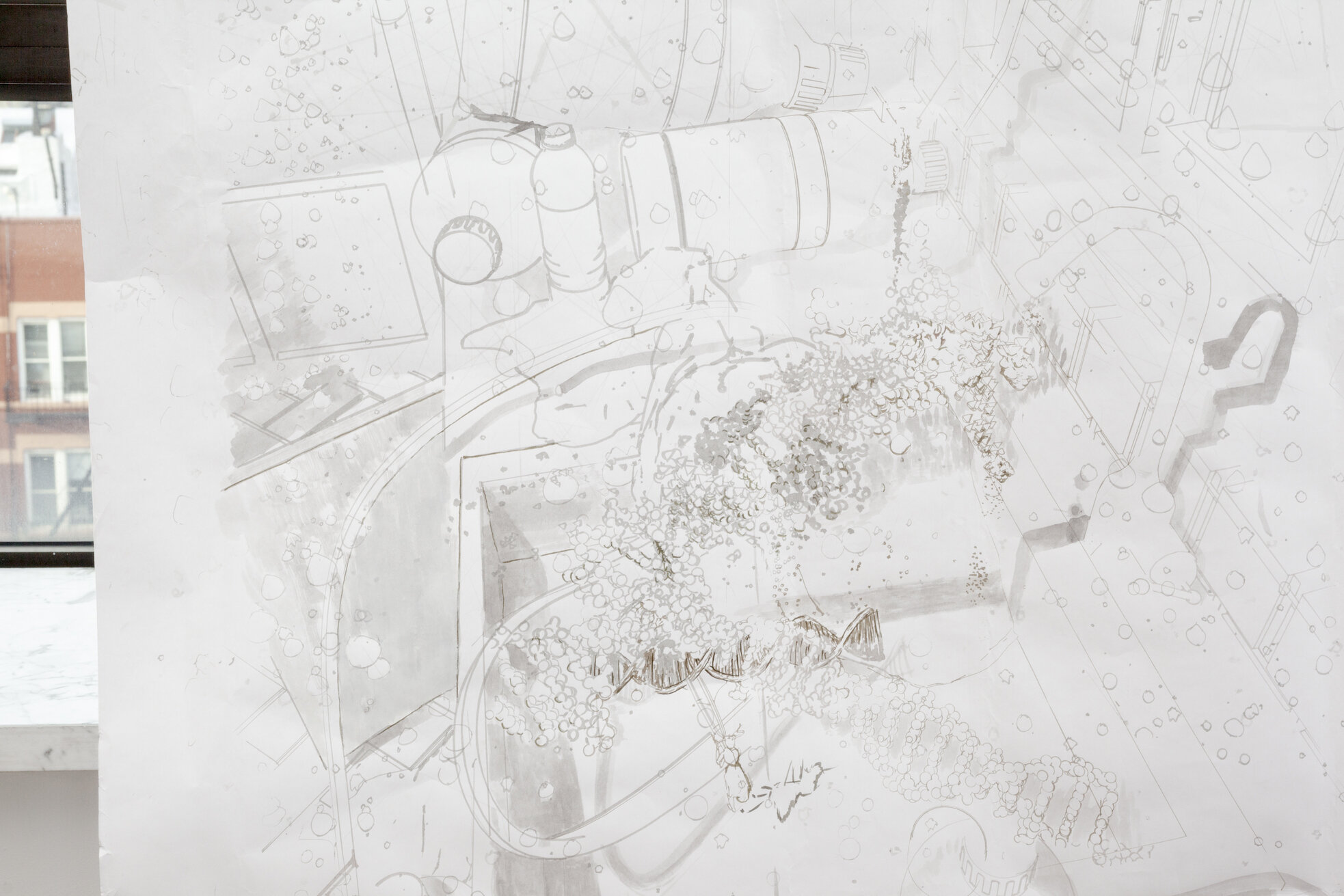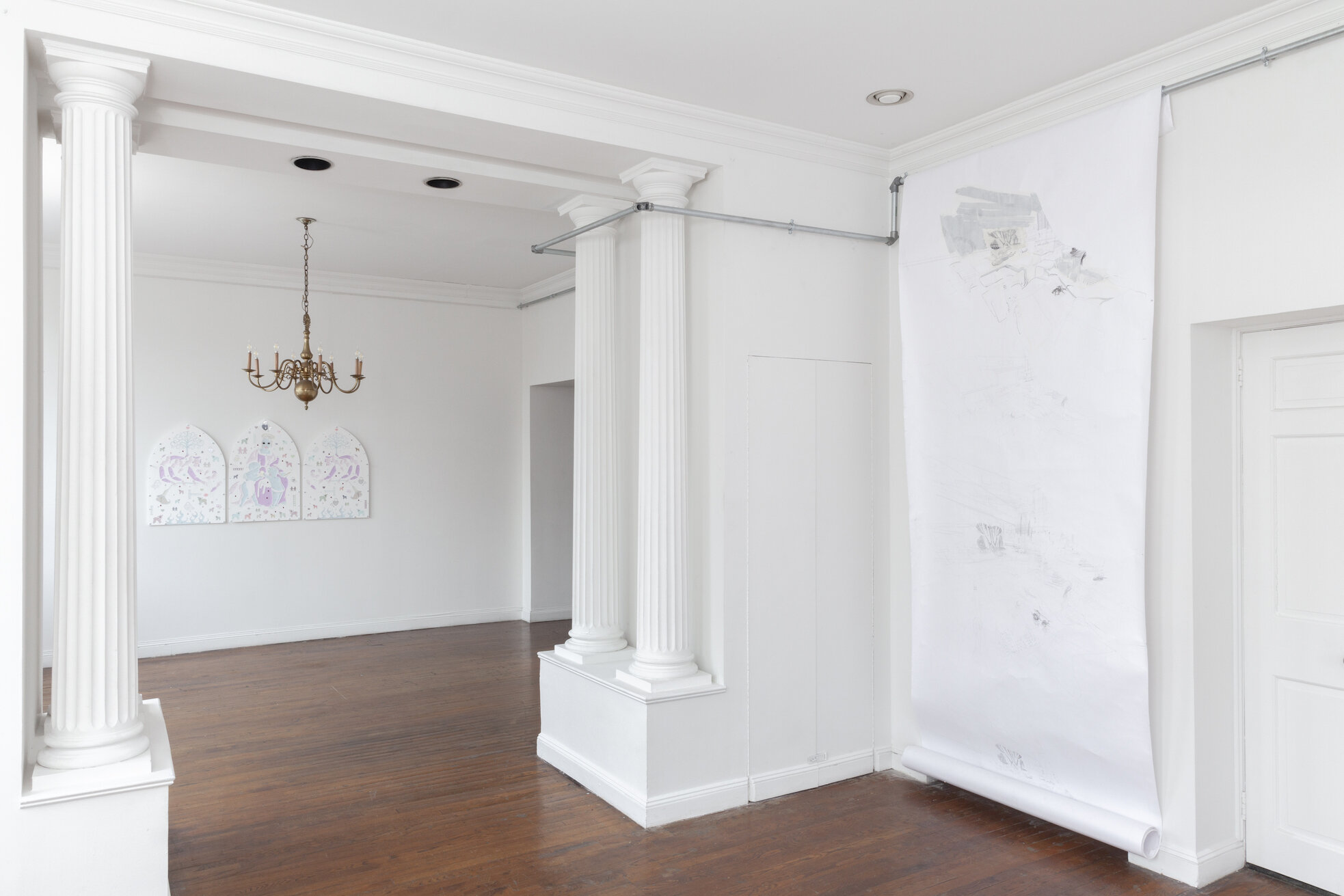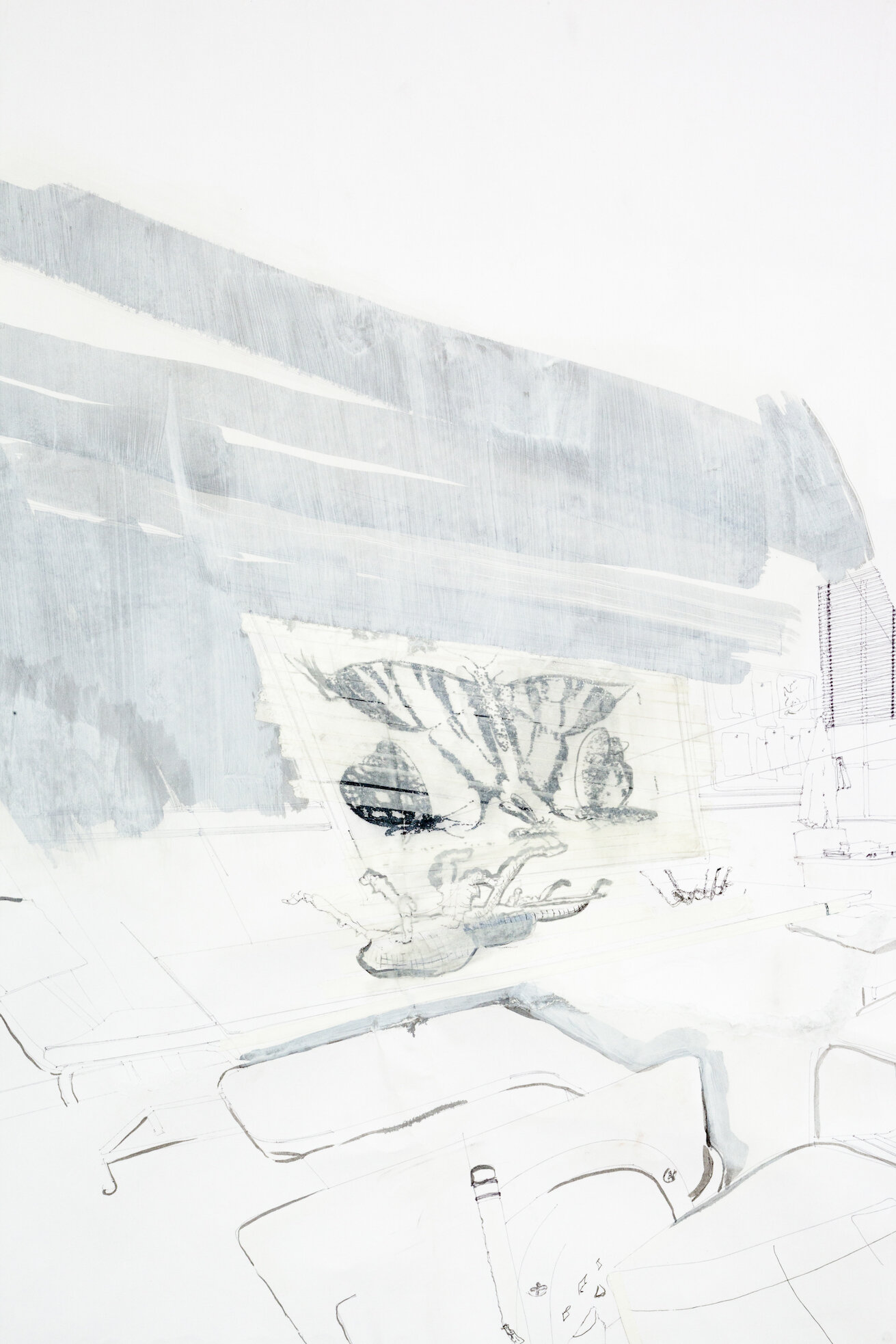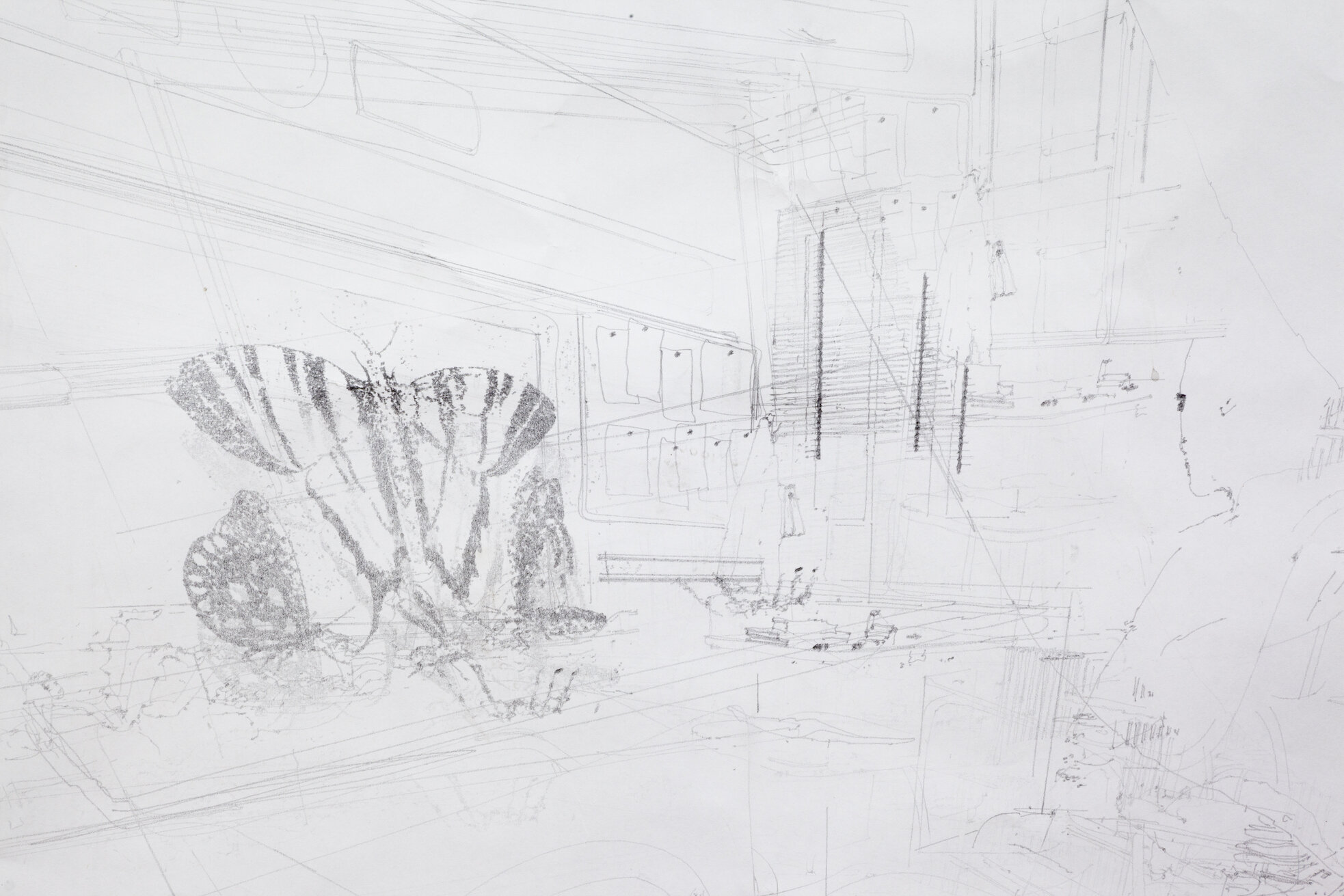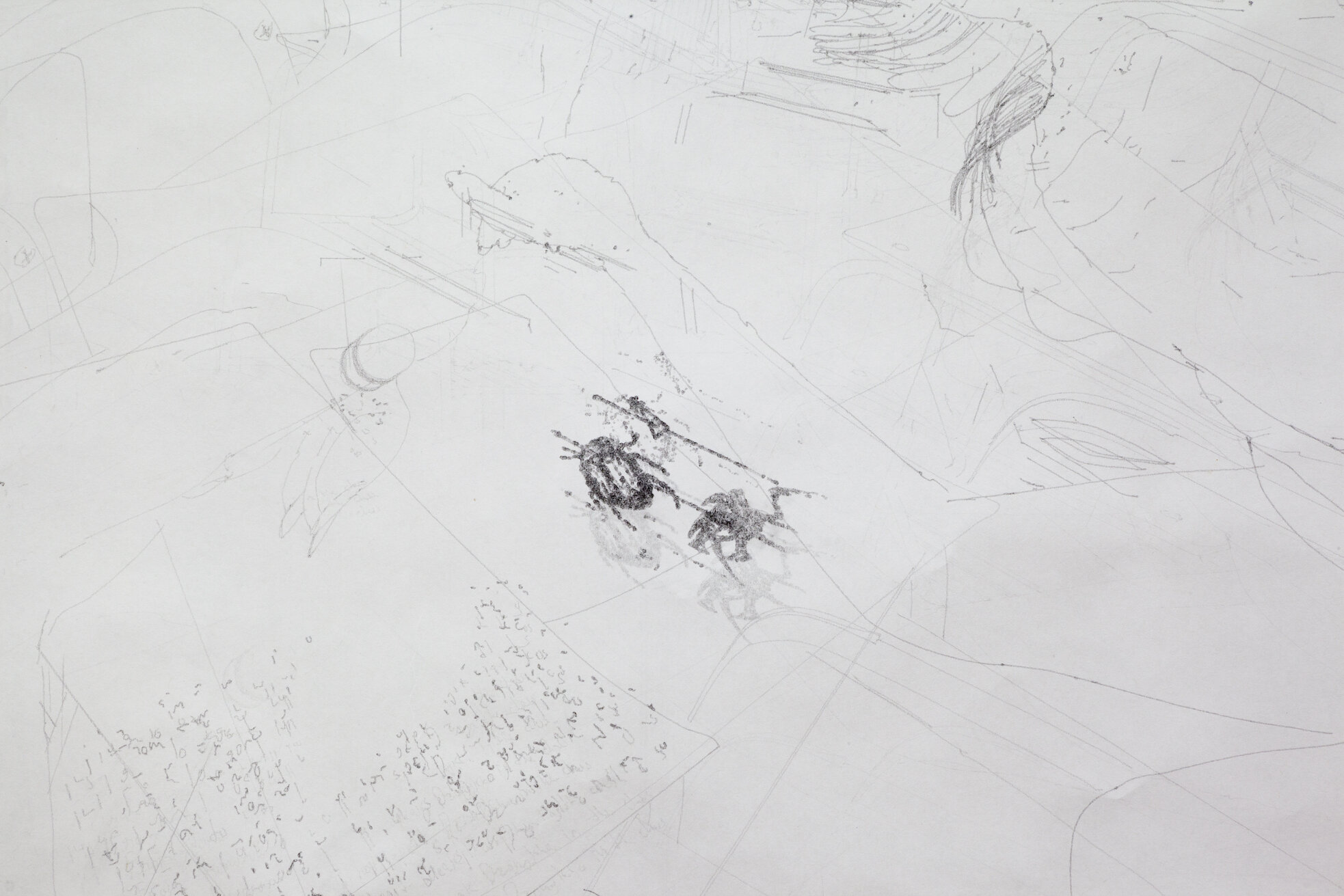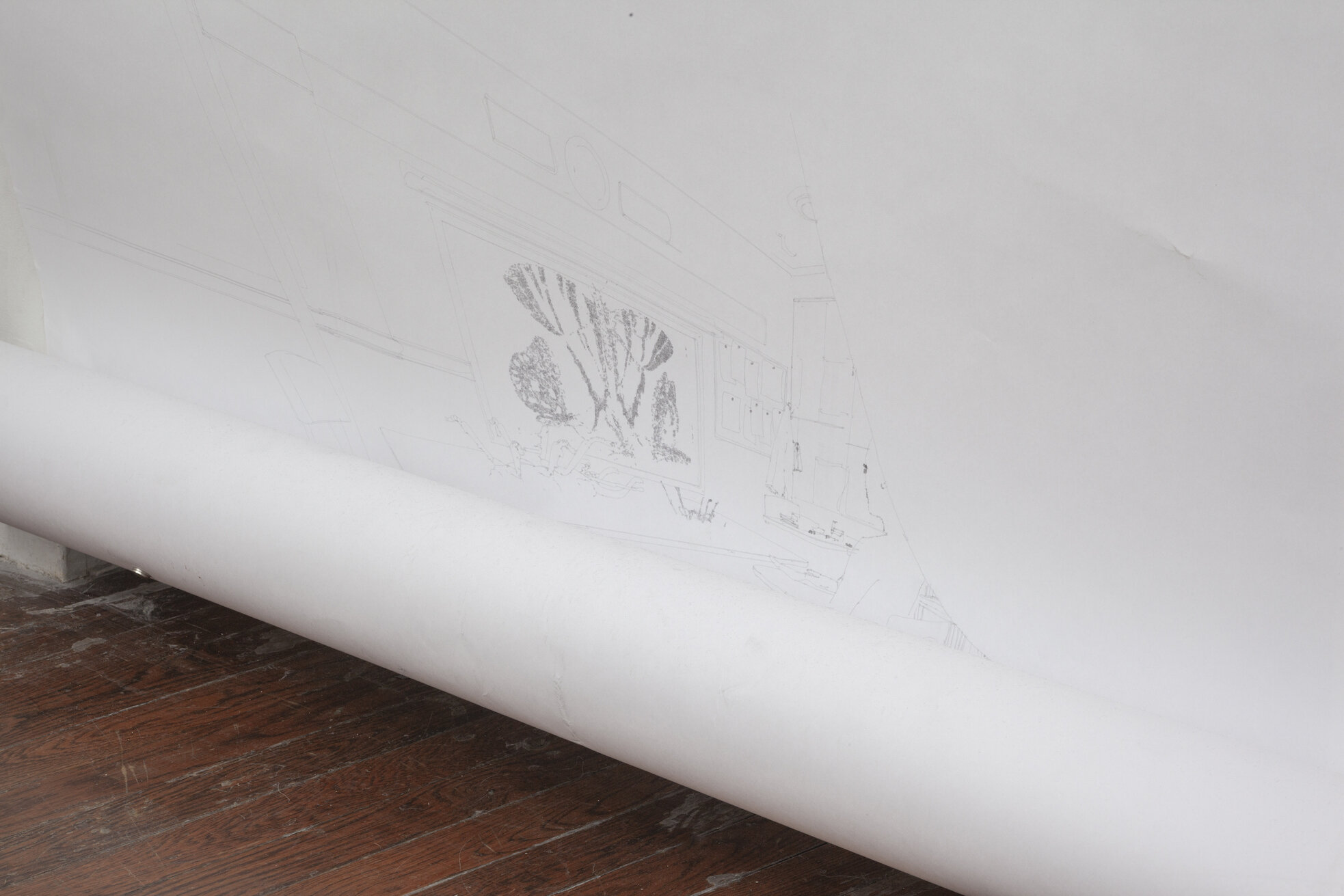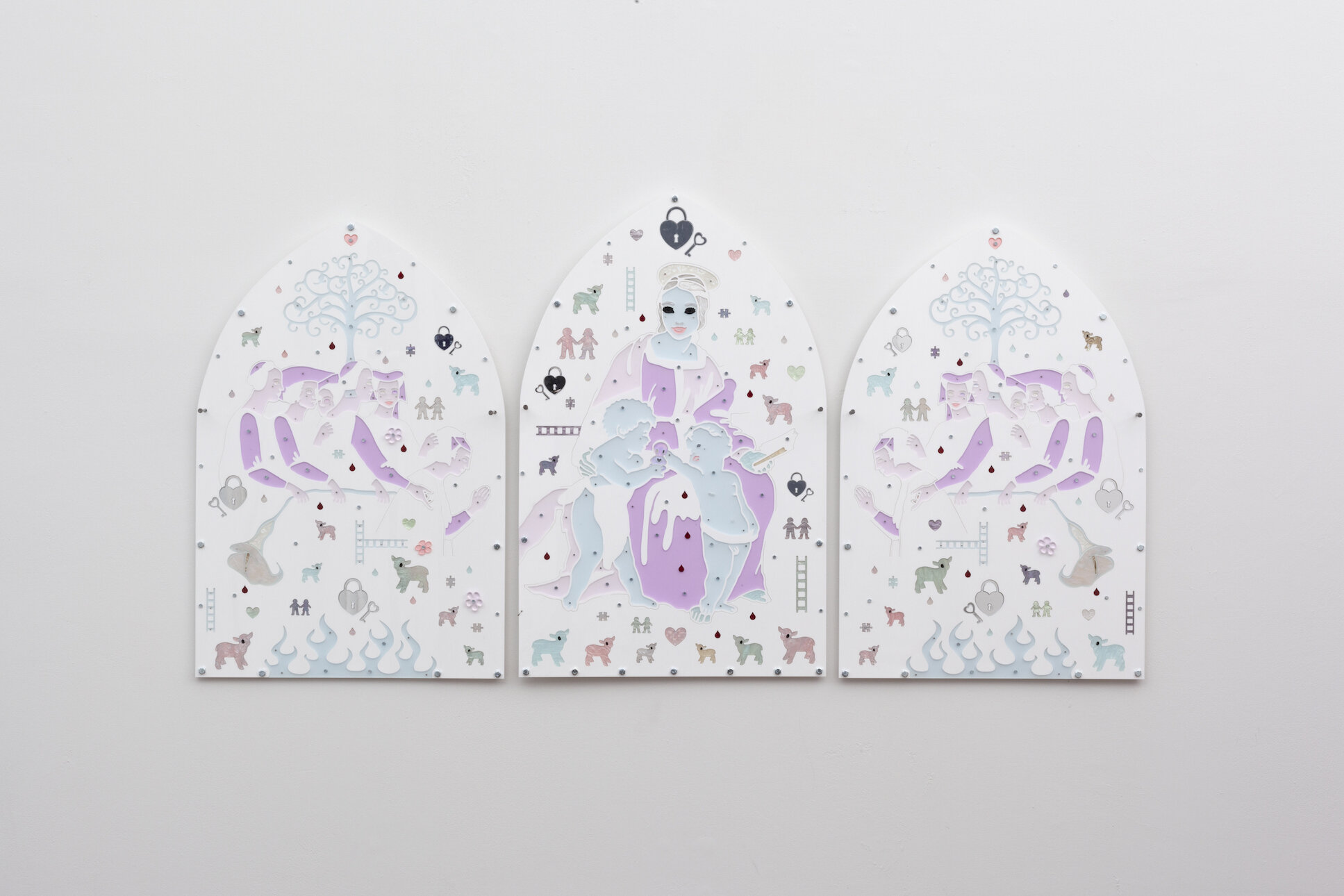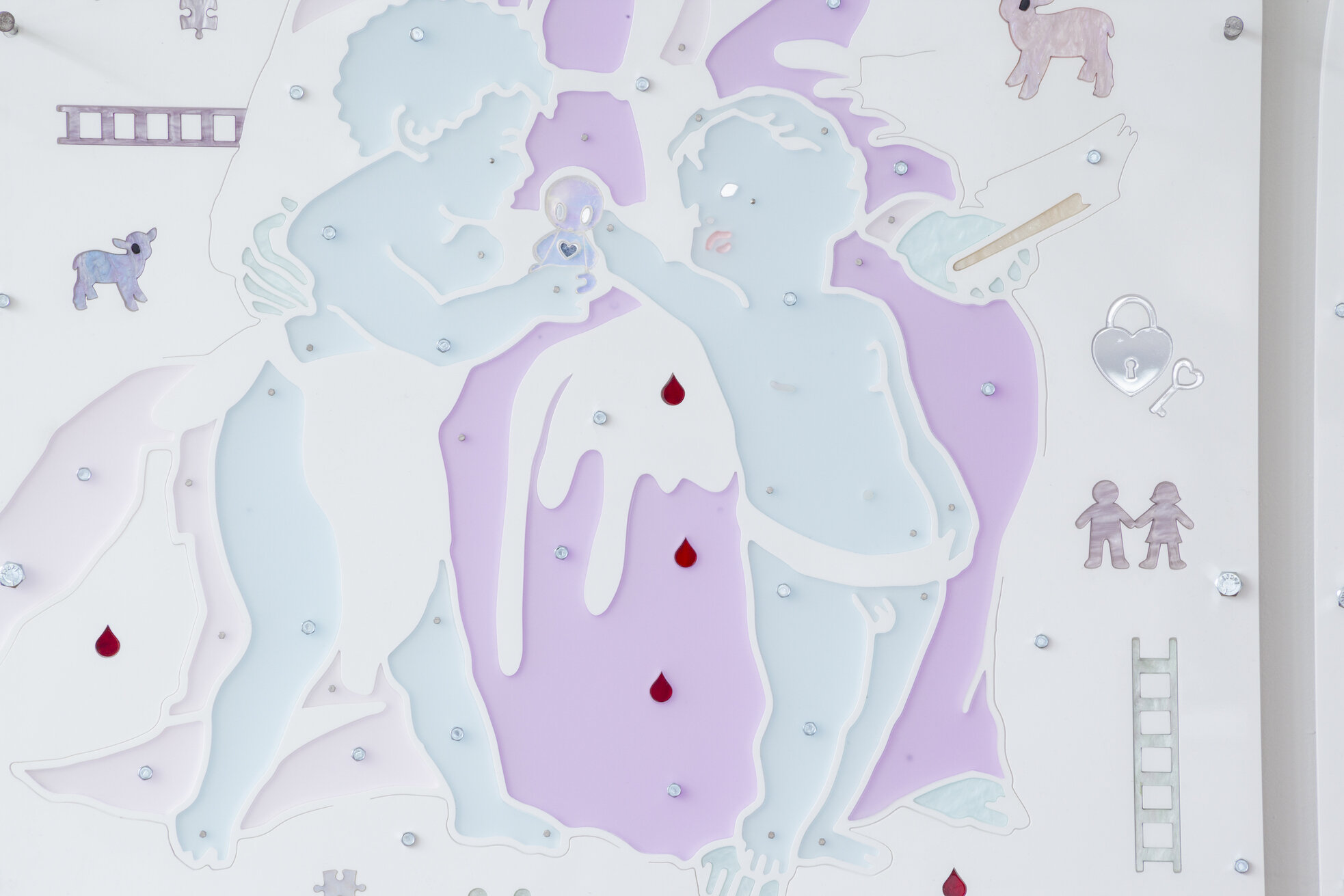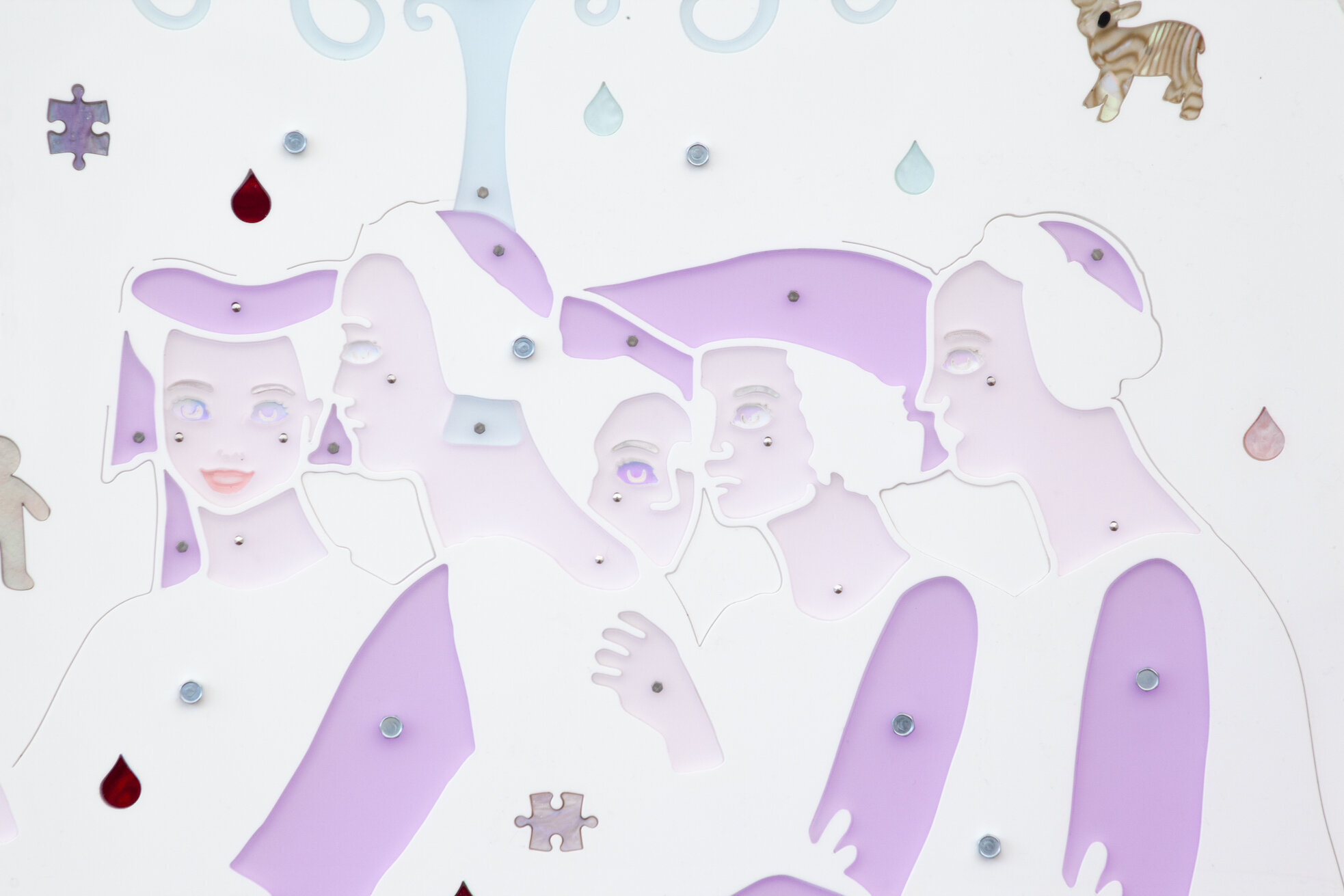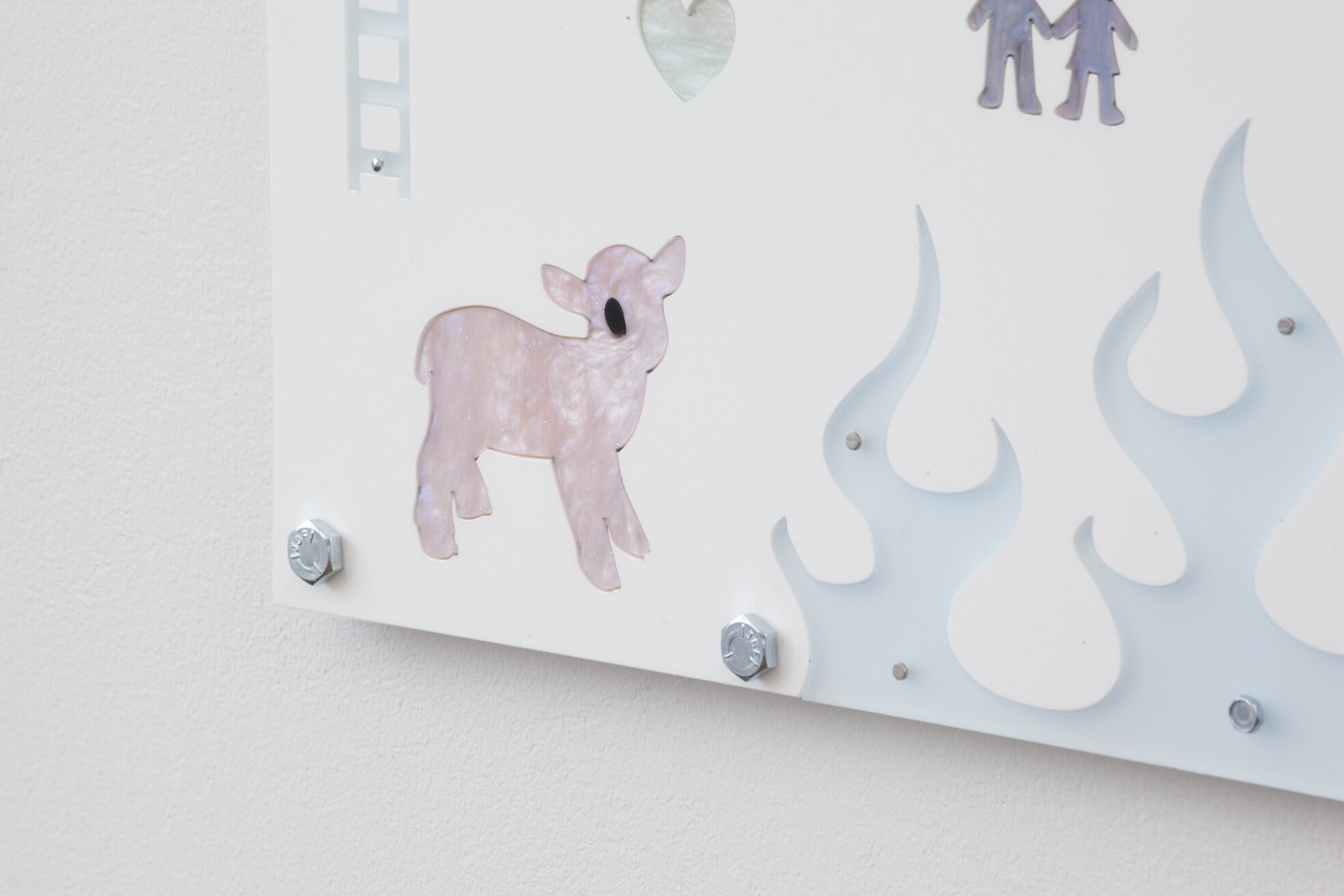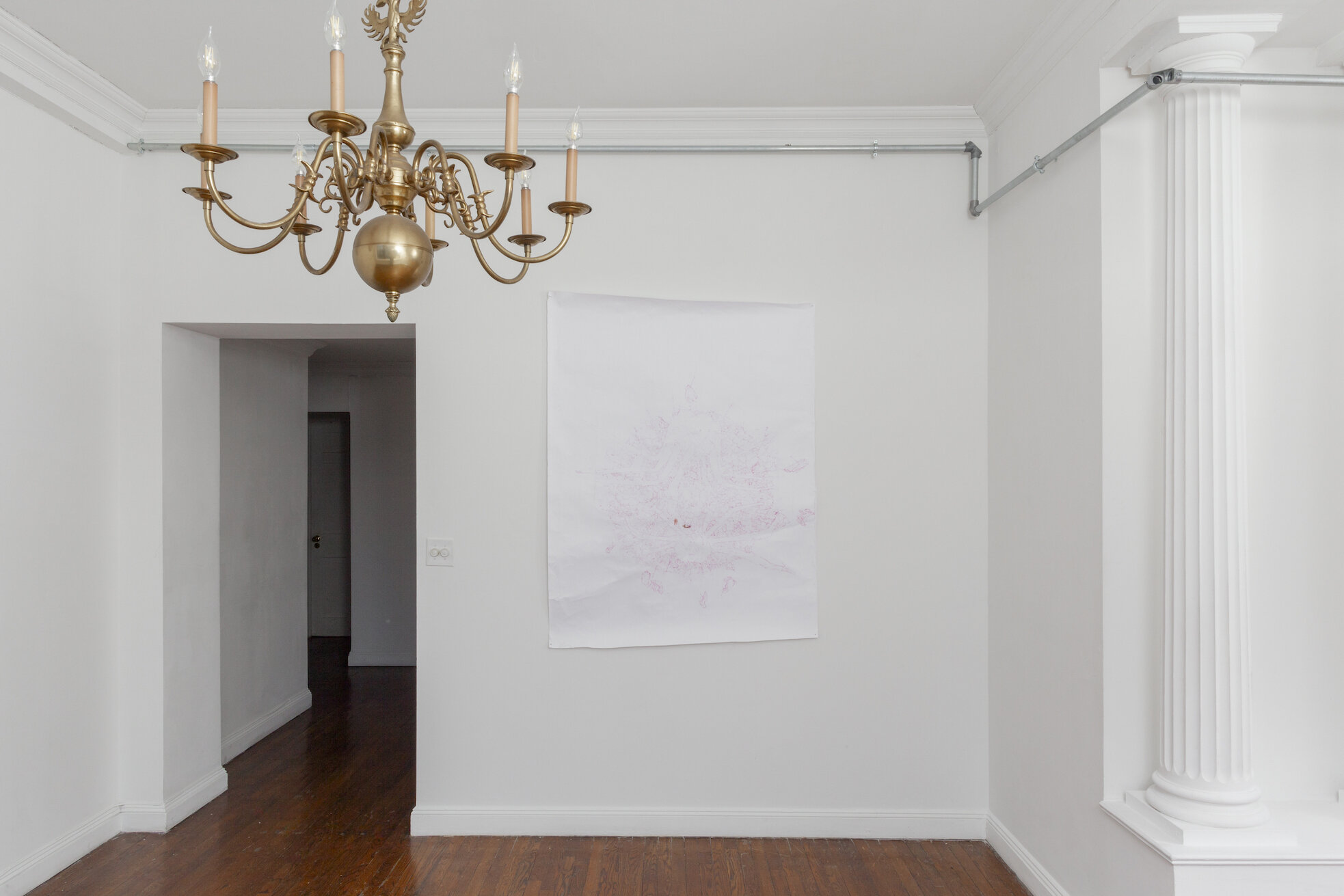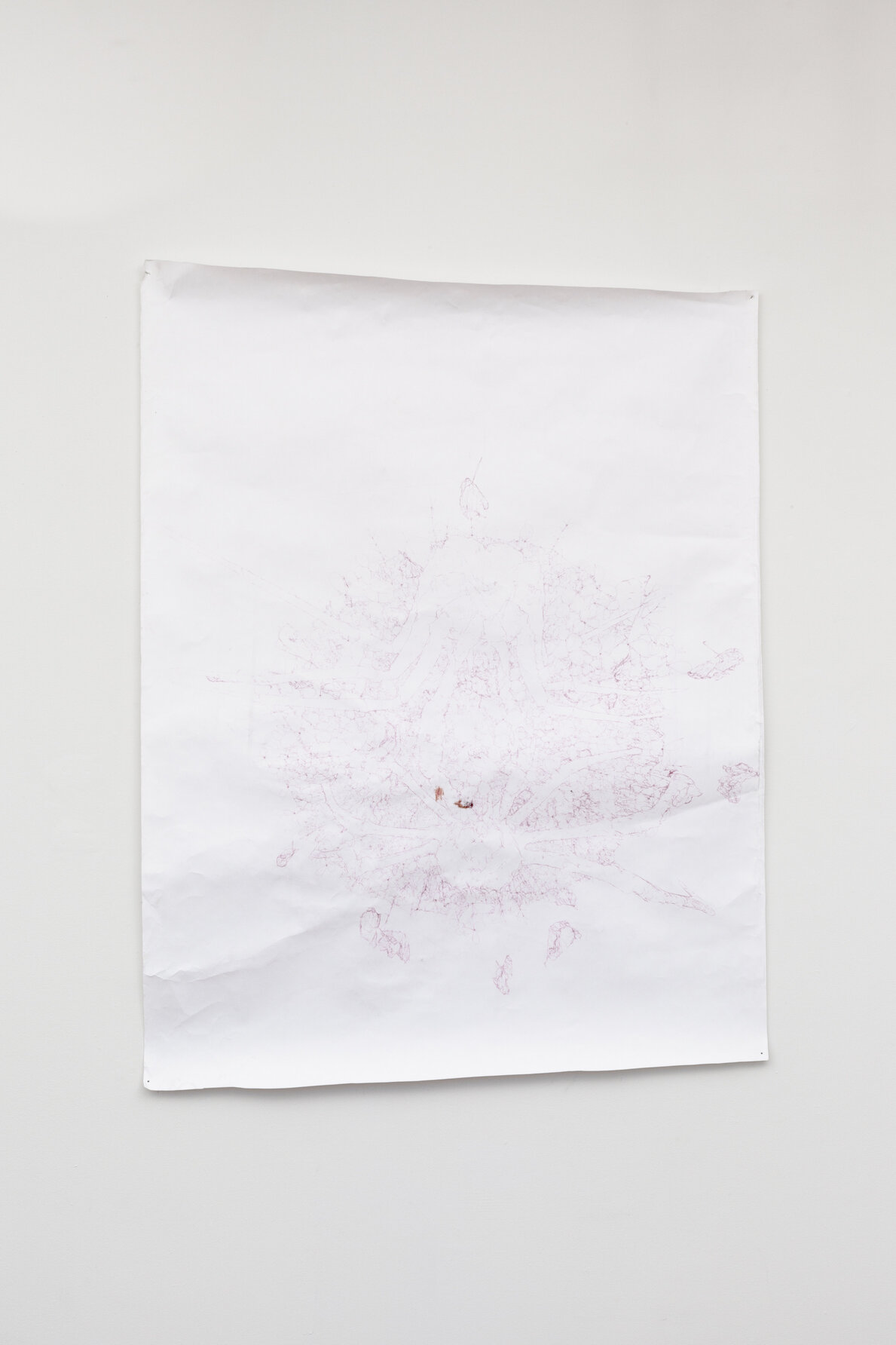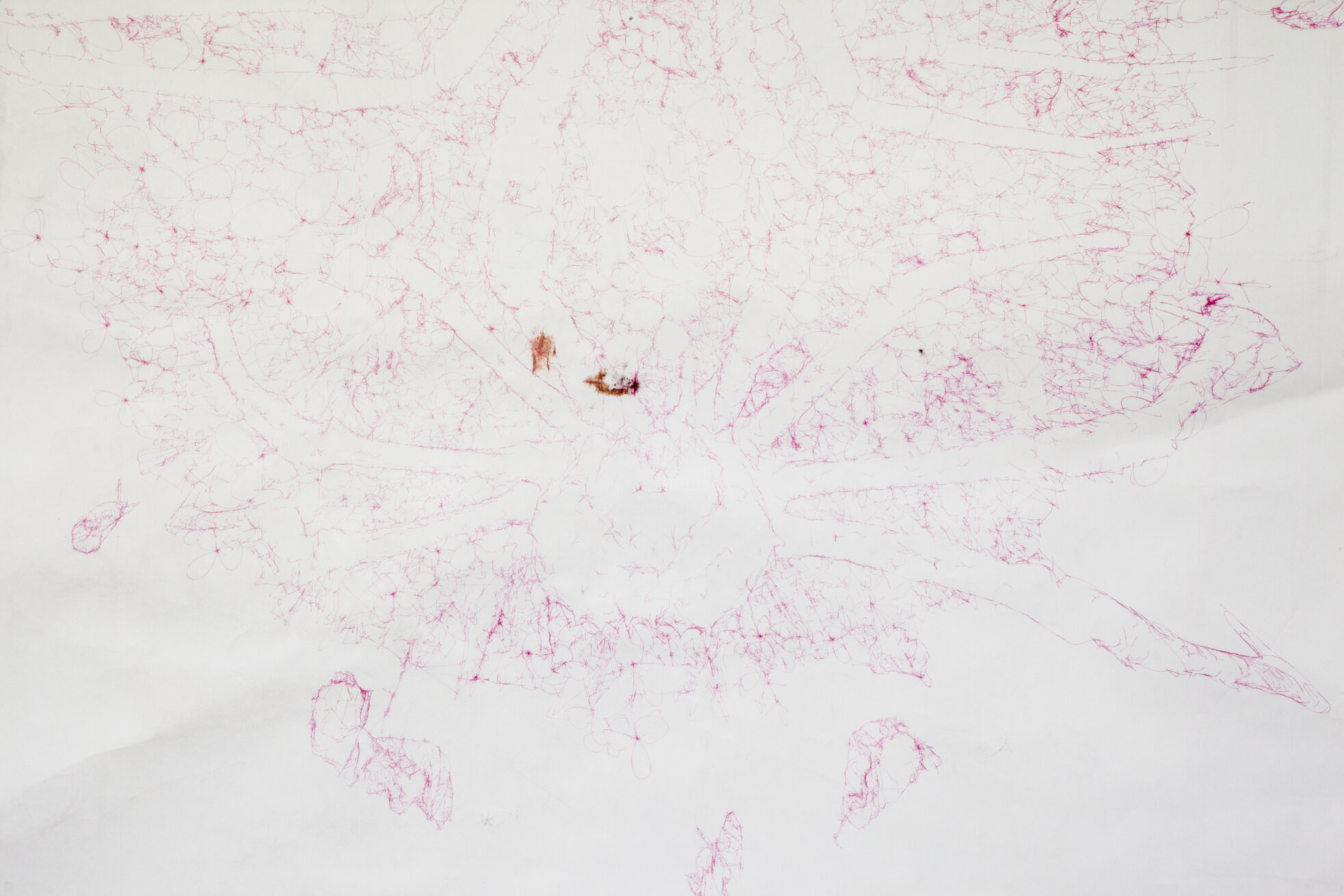Dream of the Palace
Willard Klein and Emma Pryde
January 17 - March 8, 2020
@
ALYSSA DAVIS GALLERY
2 Cornelia St. New York, NY 10014
X begins: If we follow the Enlightenment logic that god can be sensed through devotion to rationalism, reason, and individualism, it is clear Y is the outcome of our inquiry. Here is a hypothetical: I was a student among others, attempting to draw a butterfly, again and again. We calculated our decisions: pressure of the pen, 10% increase. Stroke precision, 5% less steady. Eventually in the students’ repetition, the drawn subject as such withers away. Heaven spoke to me the more form faded; only a sense of logic remains, god becomes invisible, etc. To feel flat in three dimensions is ecstasy. I pinched myself to keep learning, to keep training, thus realizing that repetition is a hallmark of godliness. The narrative can be perceived as computational: zeroes and ones, one to one, infinity to infinity. The characters of this world are programmed to get so small that they can touch genetic material, but then expand to feel each other up under the bleachers of some heaven or hell. And there we have it: isn’t computability next to godliness and isn’t godliness the telling of a story? End of discussion.
Y: I think it’s important to remember that fantasy aspires to godliness, but that fantasy isn’t contingent on storytelling with any end in sight. Rather, the archetypes and narrative devices function as molds for infinite replication, to be within us all. That is why you, X, are god. Thus my story: Their angels, gathered behind their priests, sung in harmony to me, excitedly touting their respective worlds: this is what they call the taj mahal cage— a purple we forgot about. They make it in any color you could want at the store. Then the suburban world gestures towards cookie cutter homes, housing developments where all the doors are locked. That cage? It’s heaven, our most coveted. You may think it isn’t too different from the others, but look more closely: the ceilings are taller, the doors are open, ascension is possible. In X’s dreams, their teeth keep shattering from the force of their own jaw, suggesting that god’s fissures mirror the image of the human, therefore, of desire; heaven is a place on earth with you… “GO BACK TO YOUR PALACE!” the priest screeched. I pitied the little angels as they piled back into their cages. But then it dawned on me: perhaps god never intended for their work to be understood as a progress narrative, but instead as a world that served as some sort of container for all the excess, flat, immense, or otherwise, which is where perspectivalism comes in: it’s all back there, beyond here. I will change my cognitive weapons into spiritual ones.
— GJ

